Unicorn | Interview | “There’s No Way out of Here”
David Gilmour of Pink Floyd produced ‘Blue Pine Trees,’ ‘Too Many Crooks’ and ‘One More Tomorrow’ by the Surrey based rock group Unicorn. Their third album, ‘Too Many Crooks’ got recently reissued by Think Like A Key Music.
Although Unicorn didn’t release their first album until 1971, most of the group had been playing together since 1963 under various band names, including The Senders, The Pink Bears, The Late Edition, The Late, and Late. In 1968 The Late Edition toured the UK as backing band to legendary Billy J. Kramer. After changing their name to Unicorn, they released a fantastic debut in 1971. In early 1973 they played at the wedding of former Transatlantic Records publicist Ricky Hopper. There they met and jammed with David Gilmour who a week later invited them to record at his new home studio, after which he agreed to finance the recording of a new Unicorn album and they were taken on by Steve O’Rourke’s management company EMKA.
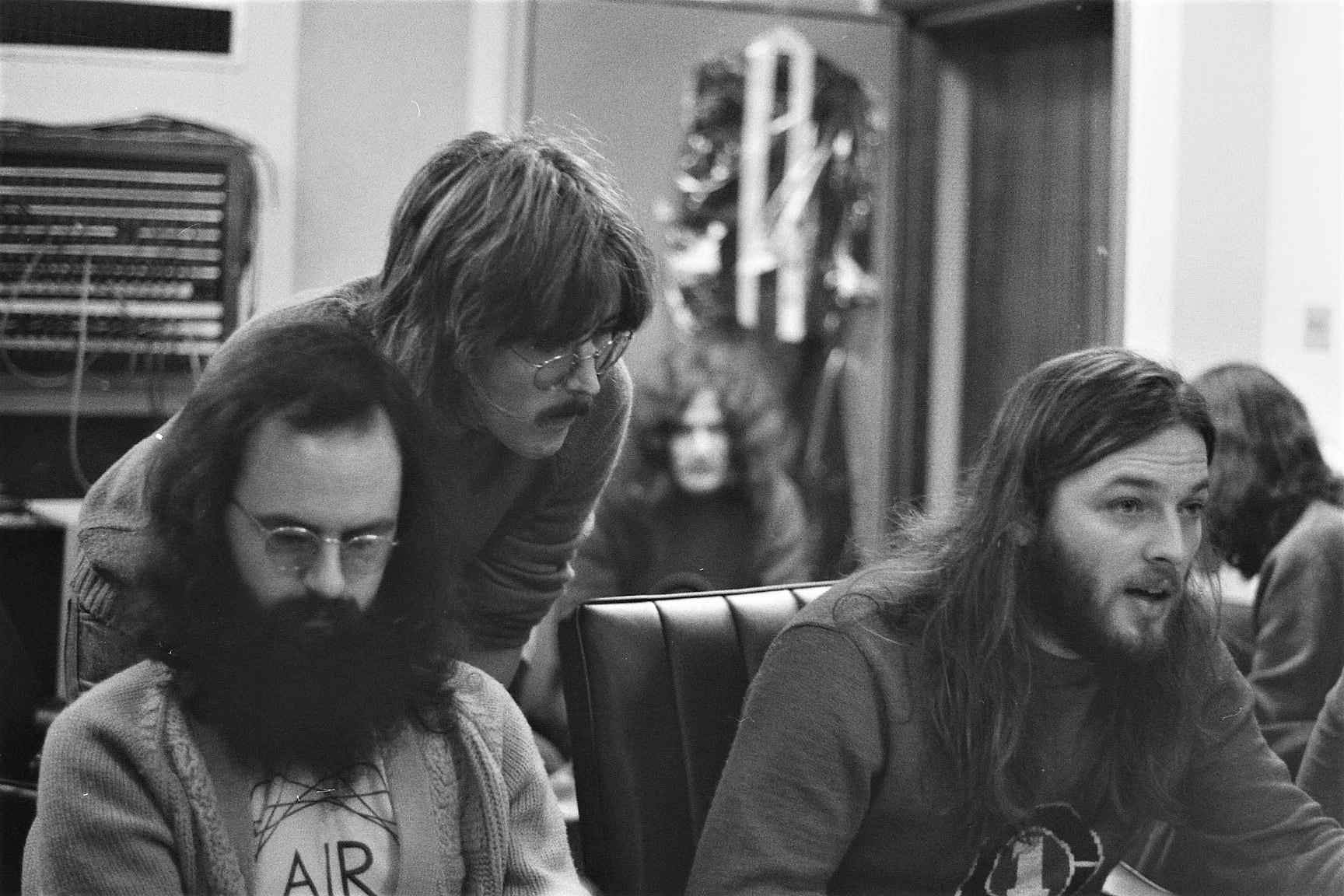
“There’s No Way out of Here”
It’s wonderful to have you. Would you mind sharing some words about your upbringing. What was growing up in Guildford like?
Pat Martin: I was born 15 March 1950 in Woking, Surrey. UK. My dad was an electrician, my mum didn’t work, most married women didn’t in those days they looked after the children and home. We lived with my mum’s parents in Woking, then my dad’s parents in Send, Surrey which was next door to Unicorn drummer / vocalist Pete Perryer so I knew him from when we were both babies. We were a poor family and stayed with my dad’s parents until I was nearly five and then we got a council flat (a form of UK public housing built by local authorities) in West Clandon, Surrey. I went to a Church of England school there from five years old to eight. My dad got a big promotion and we moved to our own house in Byfleet, Surrey where I got my first cheap Spanish guitar for Christmas aged nine. We used to spend our holidays on a farm where my Uncle and Aunt worked and my teenage cousin Sheila lived. She got me listening to pop music and the first record I brought was ‘Apache’ by The Shadows who were Cliff Richards backing group, she also insisted I got rid of my short trousers and got some blue jeans and I’ve been wearing them ever since (not the same pair lol) The second record I bought is still my favourite single to this day and is ‘Shakin’ All Over’ by Johnny Kidd & The Pirates. I grew up in Byfleet where I really got into football as well as buying records and listening to Radio Luxembourg as well as the BBC radio when it played pop records.
Was there a certain moment, event or thought that sparked the decision to become a musician?
I regularly visited my grandparents and saw Pete Perryer, we both had guitars but couldn’t figure out how to tune them. Pete’s elder brother knew a guy in the village who had a skiffle group and arranged for us to meet him and he tuned our guitars for us. Pete told me about a guy at his school called Ken Baker who brought his guitar to their school and impressed them with his playing of ‘The Cruel Sea’ by Billy J. Kramer’s backing group The Dakotas. Pete said his school was having an end of term record hop with a live band playing and that he could get me in and I could meet Ken Baker. At the age of thirteen I went to the record hop and saw the band playing on the stage, the guitars, drums and amps looked great and then I noticed all the girls up in front of the stage looking lovingly at the musicians…..that was when I decided I wanted to be a musician.
When did you begin playing music? What was your first instrument? Who were your major influences?
Ken invited me to bring my guitar to his house during the holidays, he was having lessons and he said he would show me what he had learned. I had this cheap Spanish guitar and I brought a cheap pick up to put in the sound hole. My dad tried to wire it up to my Dansette record player but it wouldn’t work. Ken had a Rosetti Lucky 7 with a built-in pick up and an amplifier his uncle had made for him, all the more reason to go and visit him. I set off on my bicycle, with my guitar under one arm and did the 5 miles to Ken’s house. My pick up worked in Ken’s amp and we were away, the first number we tried was ‘Money’ by Berry Gordy. My next guitar was a solid body Vox Stroller (copy of a Strat) and Ken got a Futurama with three pick ups and a nylon fingerboard. We loved The Hollies, The Beatles, The Rolling Stones and an older school friend turned me on to Chuck Berry. My dad came to pick me up when Ken and I got carried away, forgot about the time and it was dark and I had no lights on my bicycle. He really encouraged us, we told him Pete Perryer wanted to play drums but couldn’t afford any so on the weekend he took us to Andertons music store in Guildford and brought Pete a snare drum and a massive military band bass drum and fixed up a pedal to it. I can still picture my dad on all fours pressing Pete’s foot down onto the bass drum pedal because he couldn’t do it and hit the snare at the same time.
What bands were you a member of prior to the formation of Unicorn? Did any of those bands record anything or have some unreleased material?
We started as The Senders (Pete and I now both lived in Send) we needed a bass player and a lad called Richard Colborne from Pete and Ken’s school had a home made solid guitar and an amp, it wasn’t a bass guitar but he tried playing bass lines on it. He eventually got a Futurama bass guitar, he couldn’t play it and sing at the same time so he only played bass during a guitar solo when he wasn’t singing… He did get it together eventually. The Senders became The Pink Bears and then Richard left and we found a guy called Dave McGreggor who had a bass and an amp. He said he would join but we would have to change the band name because no way was he going to be a Pink Bear. He suggested Late Edition which we used for a while and then shortened to the Late. McGreggor left when we were offered a weekend of gigs down in Cornwall and he wanted more money for himself than the whole band were getting. I told the agent we couldn’t do the gig because our bass player had left and the agent said he would get you a bass player for the weekend.
1967 entered Trevor Mee who had been playing with Tony Rivers & The Castaways, a band who were the UK’s version of The Beach Boys. Trevor was actually a guitarist but agreed to do the weekend gigs on bass for us. He said, after the weekend, he would like to join us but not on bass, I had always listened to bass after spotting the walking bass line over the solo in my favourite record ‘Shakin All Over’ by Johnny Kidd & The Pirates and volunteered to be bass player if Trevor joined.
Tell us more about The Senders, The Pink Bears, The Late Edition. I guess you were playing “beat” music.
The Senders were Ken Baker (lead guitar / vocals), Pete Perryer (drums), Richard Colborne (bass / vocals) and me (rhythm guitar / vocals). My dad Pat (Tub) Martin was our manager and brought us a Selmer T&B 50 with 18” Golieth cabinet which we plugged bass and rhythm guitars into, a Vox AC30 for lead and an Olympic drum kit. Our PA consisted of a homemade 15 watt amp and one homemade speaker cabinet with a 12” speaker in. We did our first gig, as thirteen year olds, in late 1963 at the Butaka Youth Club in Old Woking, my Dad drove us there in his car with a trailer for the equipment. When we started playing people kept going up to my dad saying they couldn’t hear the singing so he told them to stand on the side of the room where our one PA speaker was. I remember standing on the stage looking out at all the people down one side of the hall.
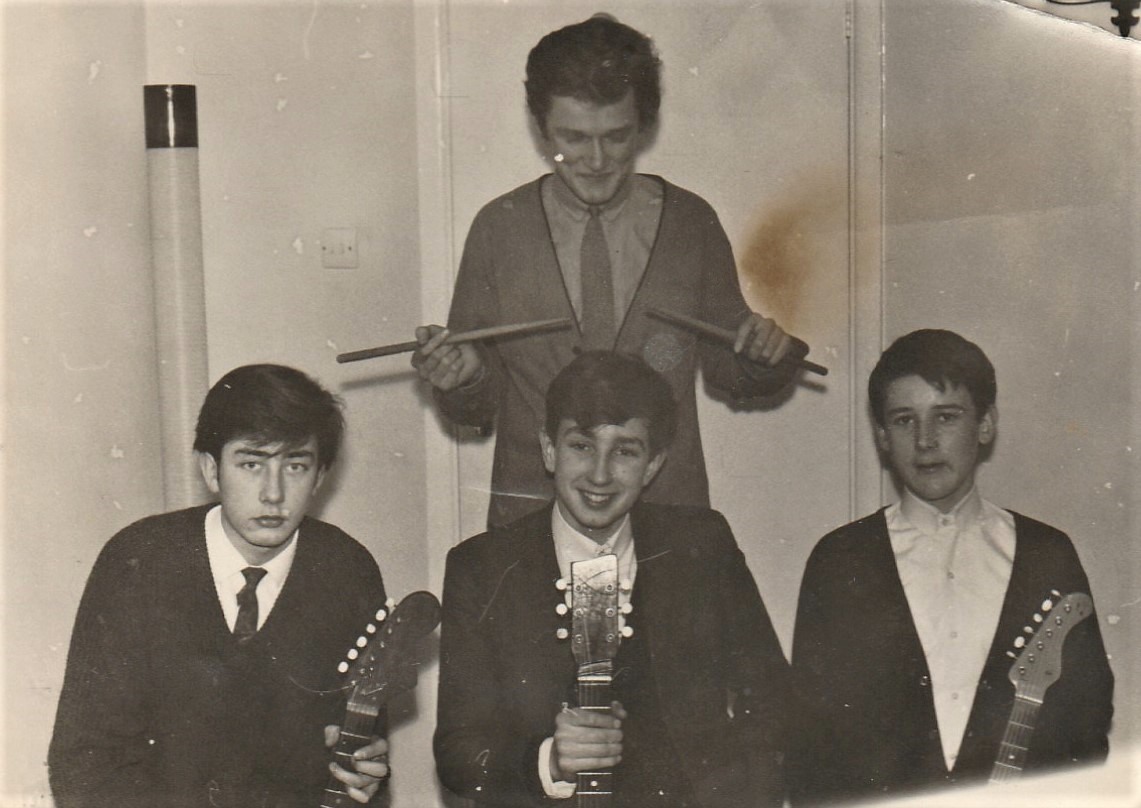
We became The Pink Bears in 1965 with the same line up. We were getting better at playing and singing and discovered Pete had a great voice when he asked if he could sing Dylan’s ‘She Belongs To Me’. I got my first Stratocaster and we started trying to copy a few more adventurous songs, not always getting the chords correct. My dad decided we should smarten up and we got some maroon mohair suits and he suggested we should try and write our own songs. We carried on as a beat group influenced by The Hollies, The Beatles and The Searchers to name a few. Richard wrote a song called ‘Tin Mine Blues’ and Pete made up a song called ‘Bow Legged Woman’ on stage one night which he ended up with the immortal line “She’s so bow legged we used to hang her up for good luck.” We used to play frequently at a youth club in Ockham, the village where Ken Baker lived and the audience was mainly girls that used to go to the same school as Pete and Ken. Pete’s girlfriend Maggie and Ken’s girlfriend Christine started a fan club, with the help of my dad. My girlfriend was Richard’s younger sister Kate and it started causing a bit of friction between us until Richard decided he was leaving.
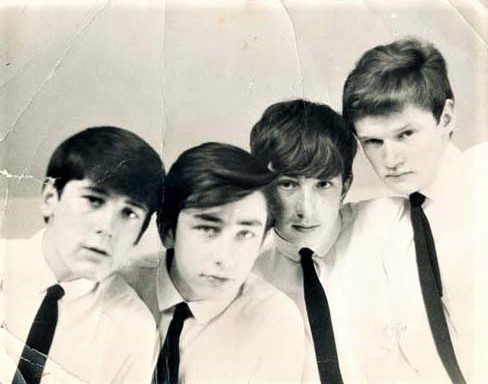
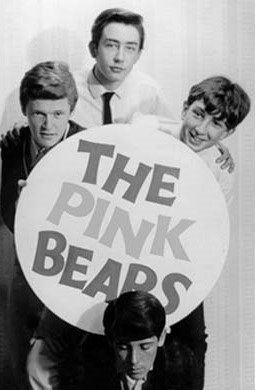
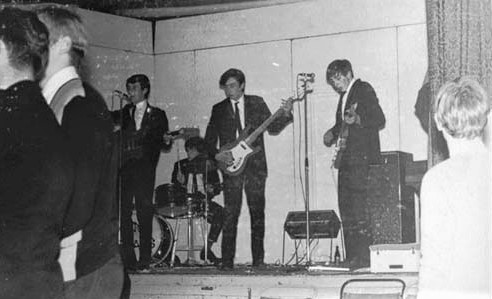
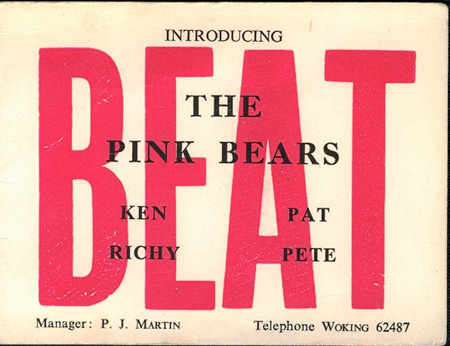
The Late Edition were formed in late 1965. We auditioned a few guys to replace Richard, one was a trainee ballet dancer with a very nice bass and amp but couldn’t actually play. Another guy, who was a friend of Richards, phoned up to say he would like to join and had tried Richard’s suit on and it fitted him but when we auditioned him he couldn’t play bass and didn’t even have one but the suit fitted him well. We eventually got the number of a guy called Dave McGreggor, he was about ten years older than us and he turned up at my dad’s house in a Triumph Spitfire sports car and with his Hofner bass which he soon swapped for a Fender. He wasn’t great on bass but he’d been in another local band and he looked the part. He said he’d join but we had to change the name because no way was he going to be a Pink Bear and also he wouldn’t wear the suit. He did his first gig with us at Ockham youth club and all the schoolgirl friends of Ken and Pete loved the new handsome older guy with the sports car so he was in. He was very persuasive and much more experienced in life than Ken, Pete and I. He suggested we should drop the beat group stuff and introduced us to Motown, Stax and James Brown et cetera. Ken was still going to guitar lessons but his teacher suggested he try keyboards too, my dad had bought a Farfisa organ for home use for him and my mum but they had both given up. Now Motown and Soul needed keyboards and brass, we couldn’t afford to get brass players in so Ken borrowed my dad’s Farfisa organ and played something like the brass parts on that.
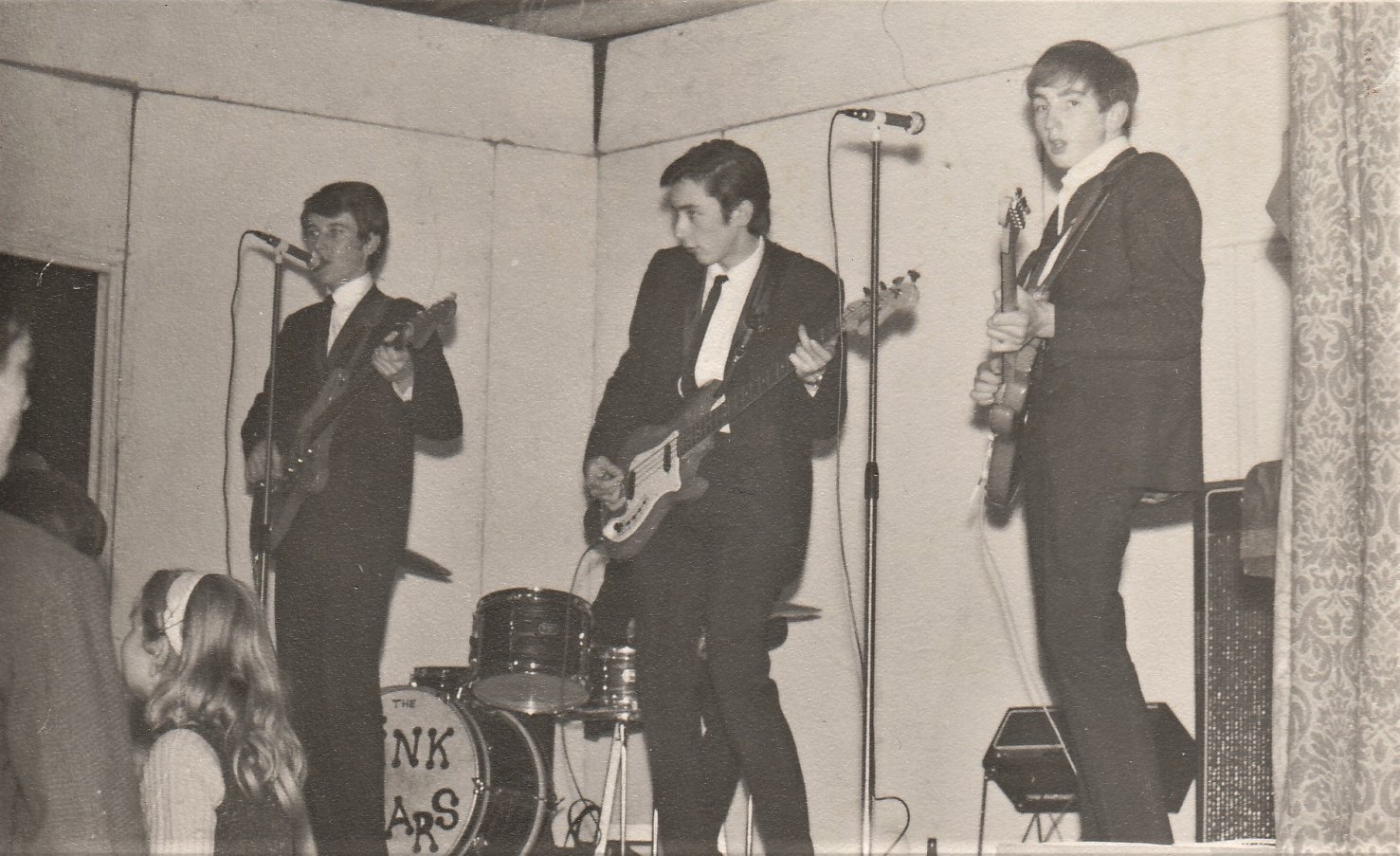
That period was the first time I noticed how wonderful the bass was on the Motown records and I didn’t realise at the time that it was James Jamerson playing those awesome lines that I fell in love with. To this day he is my hero and I didn’t find out it was him on those records until I saw an item saying “Motown bassist James Jamerson has died” in 1983.
Can you elaborate on the formation of The Late?
The Late 1966 was chosen because bands started to have shorter names (Cream, The Move, The Byrds et cetera). We put on our own gig in the Lancaster Hall, Send, Surrey. My dad suggested having a poster saying in large capital letters “ORGY” and in smaller letters “of Motown & Soul Music” with the address and admission fee. We went out late at night and stuck the posters up everywhere and the gig was a great success with a packed hall.
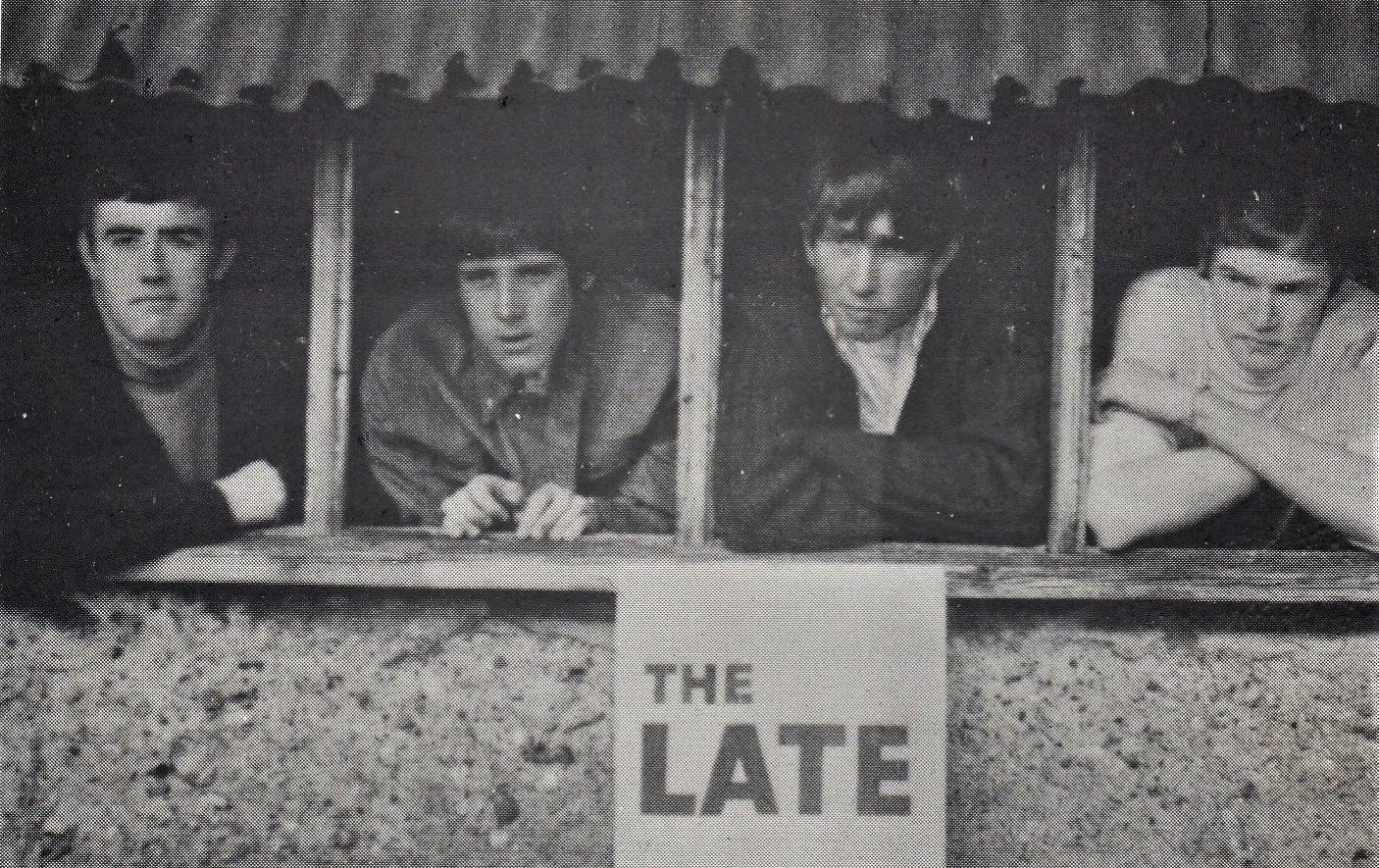
The older and very life-experienced Dave McGreggor had changed the three fairly innocent schoolboys (Ken, Pete and I) into rather naughty young guys. Up to meeting him our sexual experience had been fumbling with girlfriends, he introduced us to porn photos of ladies showing absolutely everything and one of the first photos he showed us was the mature wife of his next door neighbour sitting on a stool peeing in a bucket. I saw her in a different light after that and realised why she gave me those looks. We then started to discover and appreciate groupies and were now very ready for that.
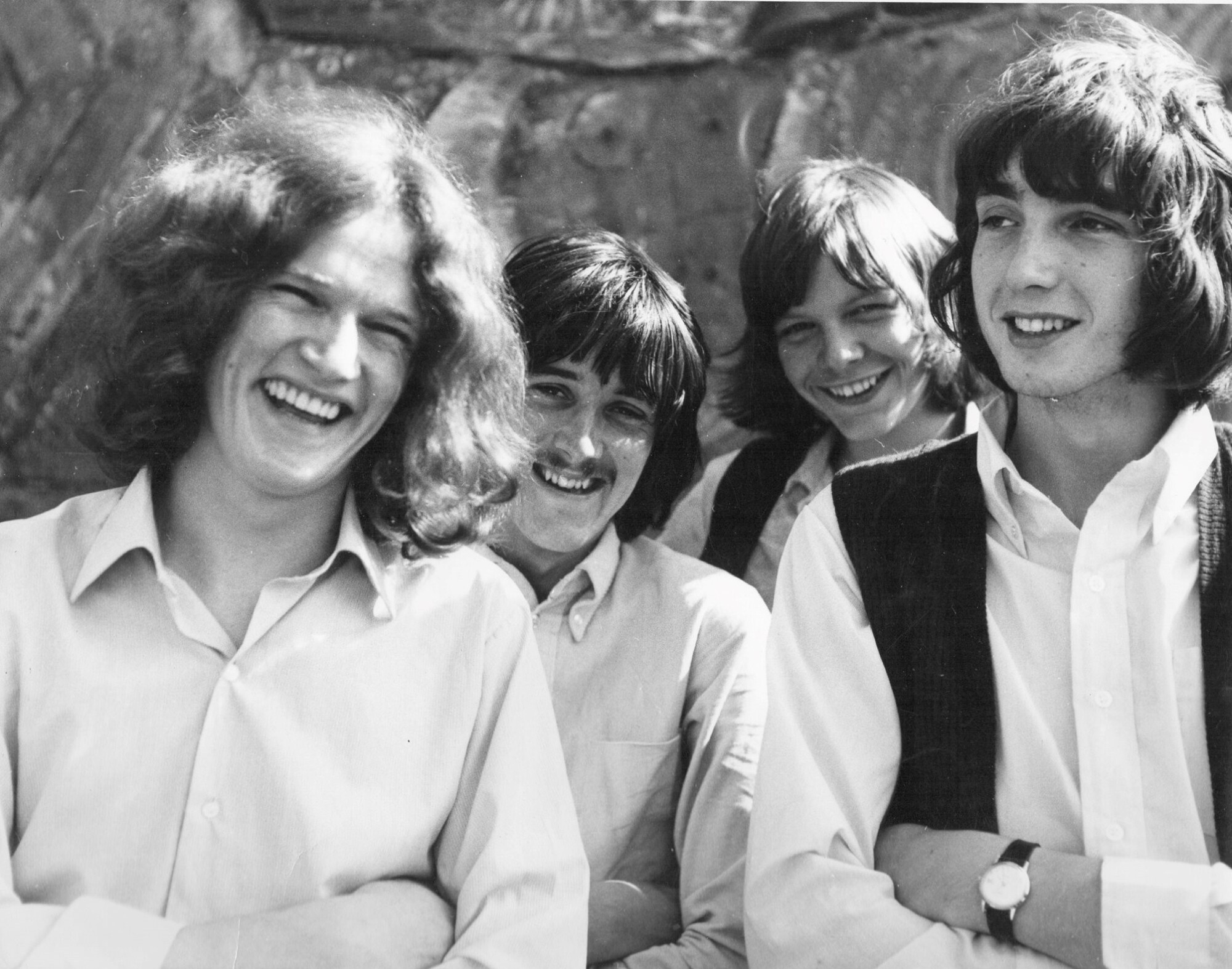
We got an agent and he booked us a weekend of gigs 250 miles from home in Cornwall SW, UK, as I mentioned earlier Dave McGreggor decided it wasn’t enough money and left the band but also he wasn’t keen to make it like we were
Trevor me, ex Tony Rivers & The Castaways, deps on bass and offers to join if he can be on lead guitar. I happily go over to bass, all I need now is a bass. I get an “Exchange & Mart” and find a Gibson EBO short scale bass guitar and my Dad lends me the cash to get it. The Late now have my dad as manager and an agent in Bob Potter International Entertainment Agency and an excellent new lead guitarist with a gift for working out harmony singing parts and he has a good voice. He discovers Pete can sing the high harmonies like Graham Nash without going into falsetto. We start playing a lot of The Byrds numbers and Trevor buys a Rickenbacker 12 string, Pete throws my Gibson bass on the floor after an argument and the neck snaps. I borrowed the money from my dad again and bought a Fender Mustang bass. We get a decent WEM pa system and do gigs all over the UK and in the Channel Islands of Guernsey and Jersey where we build a following.
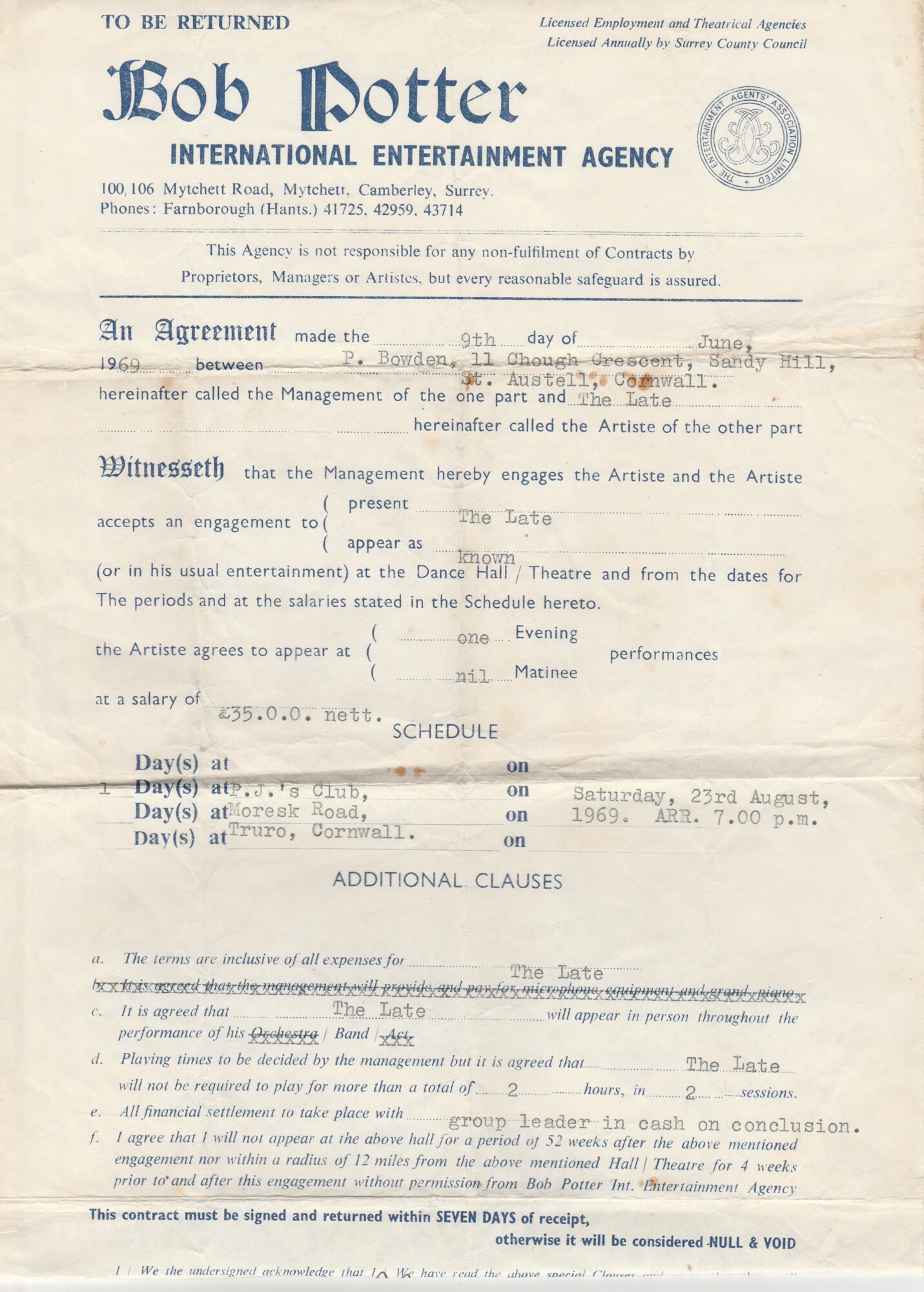
In 1968 we heard Billy J. Kramer was looking for a backing band, he came down to see us in a rehearsal room at our agents. We started playing one number and he stopped us halfway through. He said he loved us and had never had a band that did harmonies before, so we got the job. For the next best part of a year we were Billy’s backing band The Late doing two gigs a night in clubland in the North of England He was a really nice guy and had some great stories about The Beatles and his former manager Brian Epstein, but after around a year of playing his hits twice a night we decided to call it a day with him.
You got a job at the Carousel Club in Copenhagen? That must have been exciting for such a young band?
After a year with Billy J. Kramer in 1969 we were offered a month at the Carousel Club in Copenhagen. It was our first time we had been out of the UK. We arrived in Belgium and I had the first drive of our LWB Ford Transit van on the right hand side of the road, I was fine for thirty minutes until we came to a roundabout and I drove the wrong way round it. We eventually made it to Copenhagen and went to a cheap hotel the agent had arranged which just happened to be in the red light area. We had to play two one hour shows through the week and then three one hour shows on Friday, Saturday and Sundays There would be a different local band on each night as well. We played on a sort of balcony stage above the crowd, after our first show I went down to the bar and three beautiful blonde Danish girls came up to me and started chatting in fairly good English… I thought I’d died and gone to heaven. Playing for such long sets every night and sometimes jamming with the local musicians made us very tight. We were playing lots of US West Coast covers by The Byrds, Buffalo Springfield, The Beach Boys plus UK The Hollies, The Who, The Beatles et cetera.
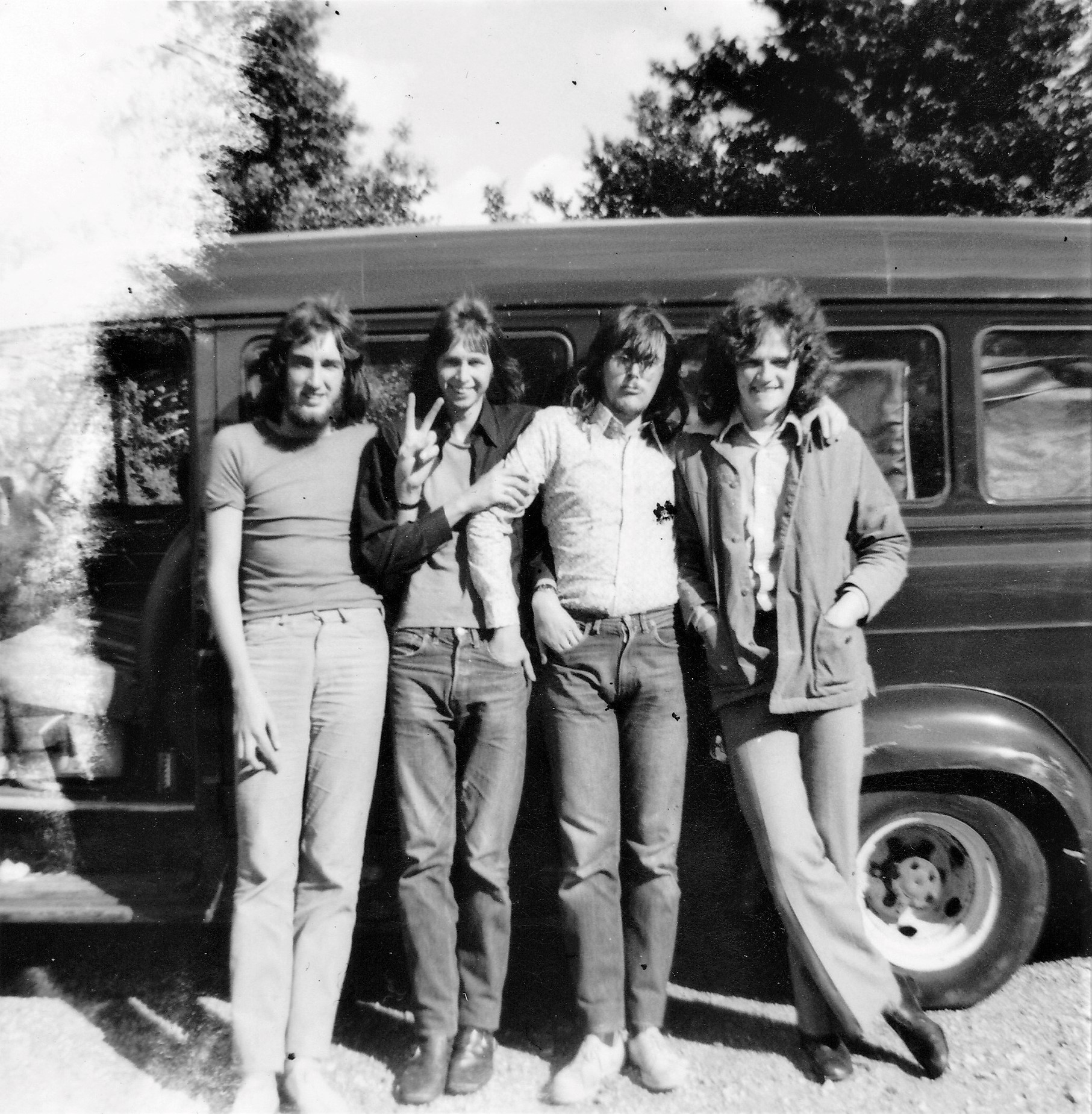
A local band invited us to their van in a break between sets and we tried to smoke pot for the first time, they used a chillum and nothing happened because we couldn’t figure out how to hold it and get a puff. They gave us a lump to try later and we rolled our first joint back at the hotel later. Ken, Trevor and I got our first buzz, but Pete didn’t like it and preferred to stick to beer. The next night Ken, Trevor and I had a joint in the break before the last set and went on stoned and played The Byrds ‘Eight Miles High’ for about thirty minutes. We came off stage raving about how good it had been, but Pete, who didn’t have any, said we were crap so we just smoked it after gigs at the hotel after that. There were hookers operating from the two rooms either side of our hotel rooms and the soundtrack still remains in my brain.
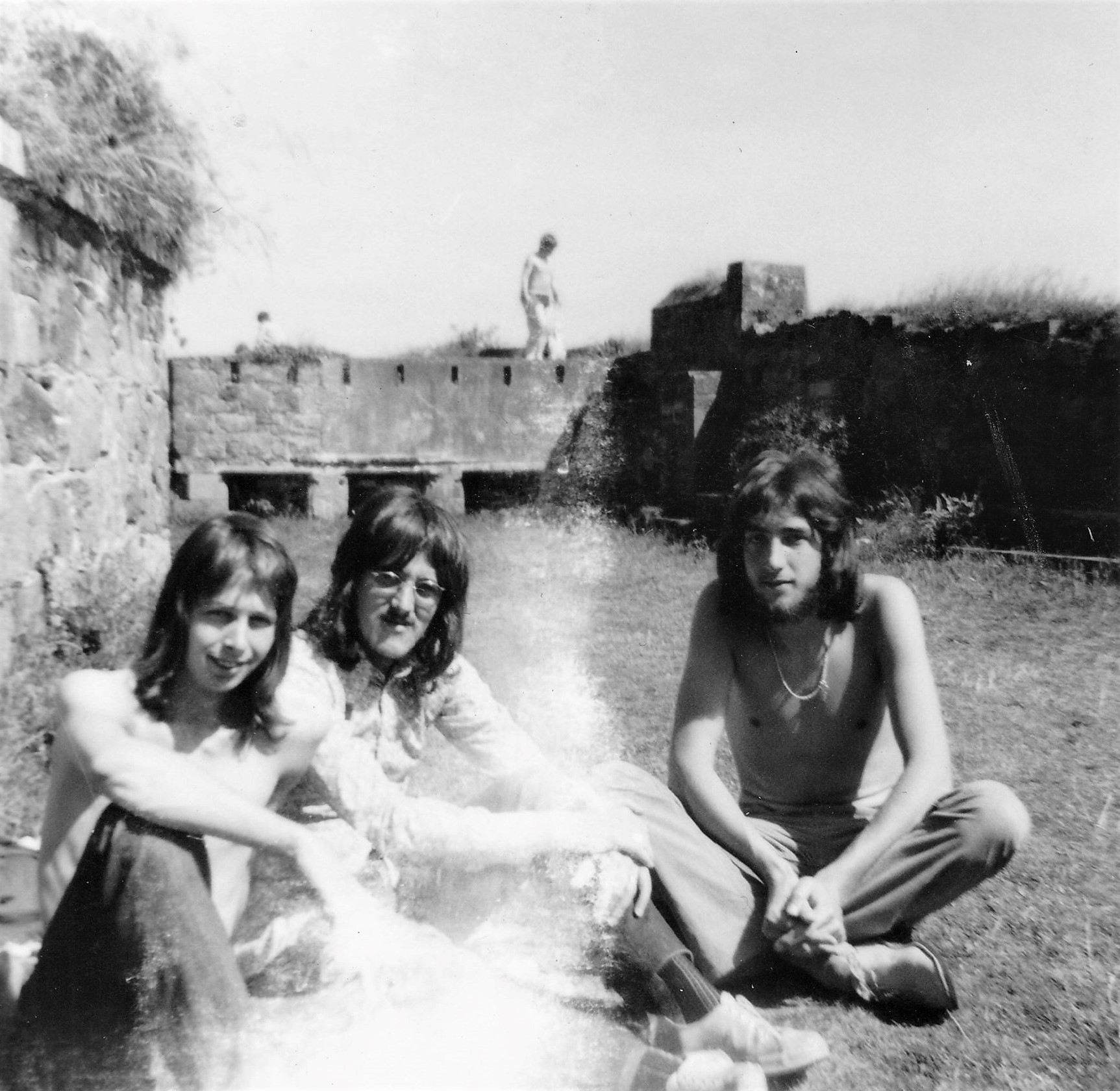
One night in the club a guy came up to us and said he was the DJ in the “Key Club” above the room we were playing in and invited us up to visit him when we had finished, he said “I know what music you like, I’m going to play you guys something that is going to blow your minds.” We went up there after the last show and he was waiting for us in the empty Key Club. He gave us a giant spliff and then played us the first Crosby, Stills & Nash album full blast on the club’s amazing sound system…we were stunned, ended up getting the album and learnt nearly all of the songs.
One of the Danish bands who shared the stage with us had a Hammond organ and let Ken play it, the result was magic so much better than the Farfisa. We arranged to borrow it from the guy for our last night when my dad, our manager, flew out to see us. He was so impressed with how tight we now were and how much the Hammond organ improved our sound that on our return home he got us one.
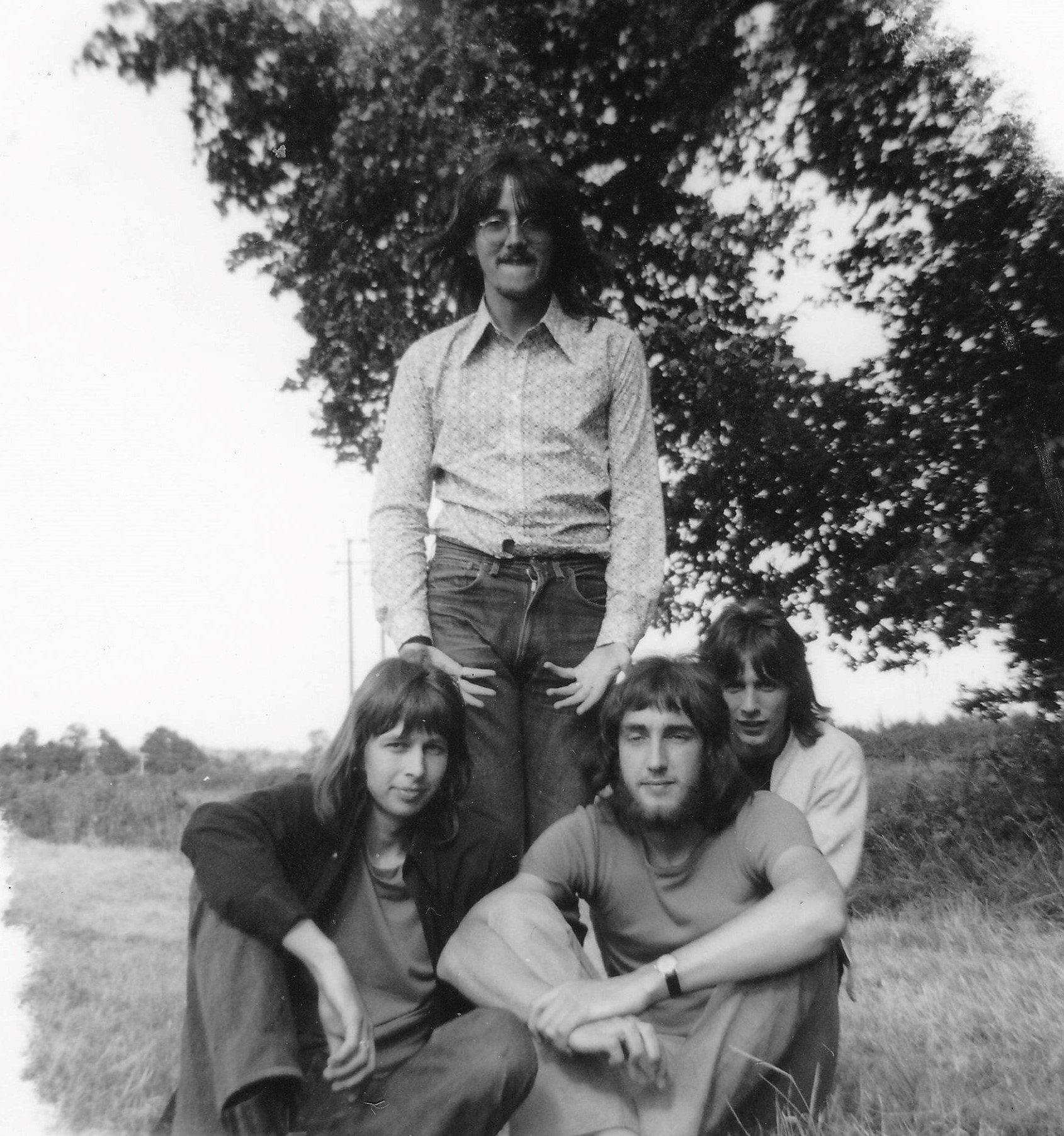
We left Copenhagen with many great memories of the best month of our lives so far and quite a few broken hearted ladies saying they wanted to come to the UK to be with us… a couple of them actually did but I won’t elaborate on that.
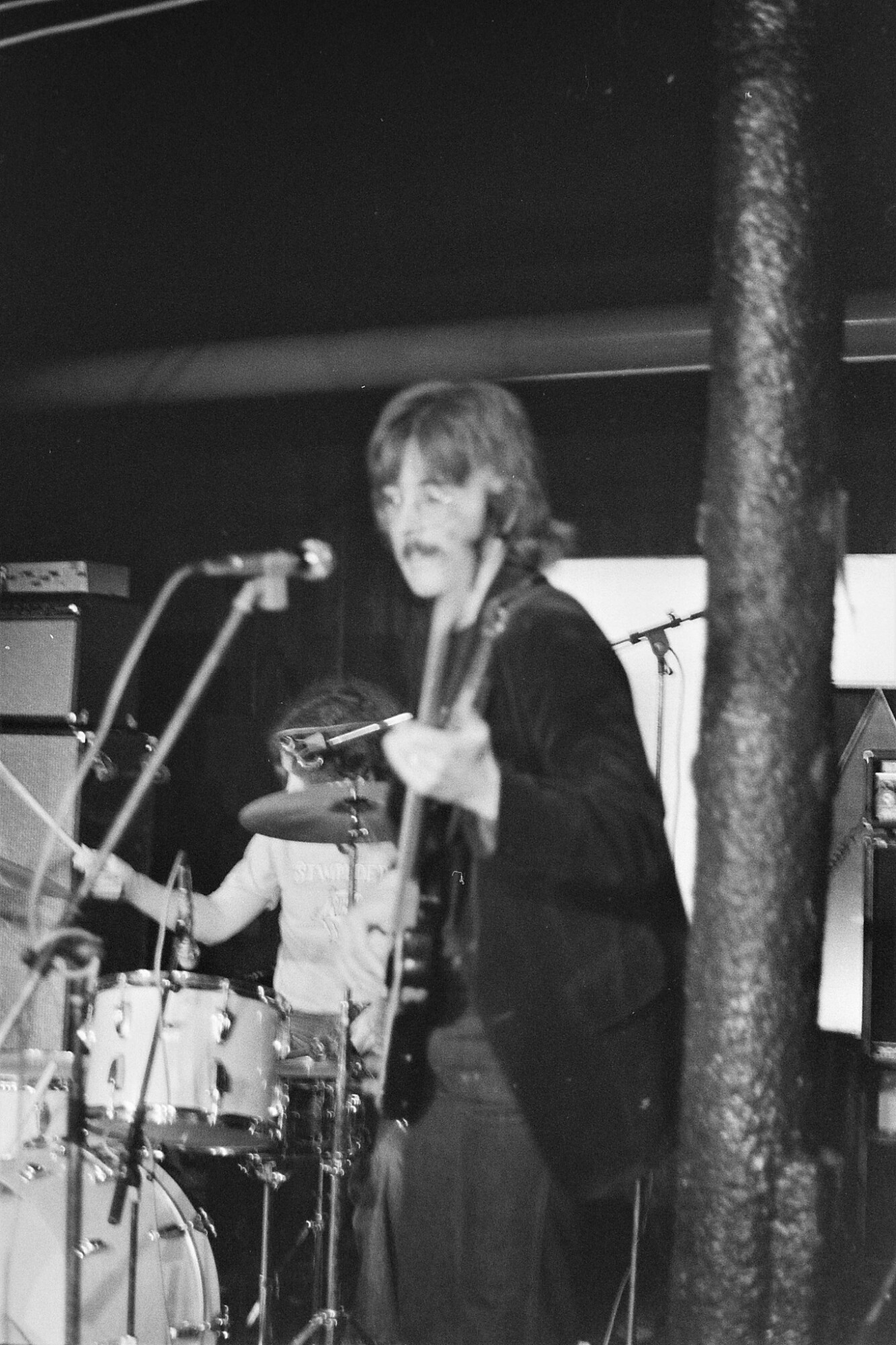
Tell us what kind of material we find on ‘Songs From The Family Tree’ compilation? Where and when was the material originally recorded?
It’s our first attempt at recording and at writing songs plus a few covers. We like to think you can hear us improving and it ends on a remix of our first single when we became Unicorn. I wrote the title track ‘Family Tree’ and decided it was best to leave the song writing to Ken. Most of the material was recorded on a four track Ampex recorder at our agents studio. The equipment had belonged to legendary producer / engineer Joe Meek and our agent brought it from the estate of Joe Meek after he died. We only had the tracks on 7” acetate discs, Wooden Hill Records had them cleaned up and digitised.
When and where did you play your first gigs? How was the band accepted by the audience?
We played our first gig at the Butakka Youth Club in Old Woking, Surrey. Our next few gigs were at Ockham Village Hall and the Lancaster Hall Send, Surrey. We seemed to go down very well but we were playing with school friends.
What were the circumstances surrounding the name change to Unicorn?
When we got our first record deal with Transatlantic Records they insisted we needed a name change, they wanted to call us Armadillo which seemed more apt for a heavy band rather than a soft rock band like we were at the time. We settled on the “Unicorn” which Ken came up with… I’ve always thought it was a crap name and did us no favours.
“Hearing Crosby, Stills & Nash first album really opened our minds to the possibilities”
Did you do a lot of shows before being signed to a label? What did your repertoire look like?
We did hundreds of gigs from The Senders, The Pink Bears, Late Edition and Late Up until signing the record deal with Transatlantic Records in 1971. Most of the gigs were when we were 60’s Pop Star Billy J. Kramer’s backing band and doing two gigs a night for nearly a year. Our repertoire started off with simple three chord beat group stuff and gradually progressed. We had a big leap forward after Dave McGreggor left and Trevor Mee joined. He got us singing vocal harmonies and we started covering more challenging songs. Hearing Crosby, Stills & Nash first album really opened our minds to the possibilities of what we might achieve and Ken Baker really started developing as a songwriter.
How did you get signed to Transatlantic Records? Up to signing the record deal with Transatlantic Records?
Ken found an album in his local record shop of The Humblebums (Gerry Rafferty and Billy Connolly) which was on the Transatlantic Records label. We had a rough live gig recording and some of the early songwriting demos and my dad took them to Transatlantic Records. He managed to persuade the owner Nat Joseph to see him and they hit it off, Nat introduced him to the A&R man and they got on very well too. We were then offered a deal, it wasn’t great and only a small advance that we used to buy some more PA equipment but we had our first record deal.
What’s the story behind your debut album, ‘Uphill All the Way’? Where did you record it? What kind of equipment did you use and who was the producer? How many hours did you spend in the studio?
We were put in touch with producer Hugh Murphy who had been learning the trade with legendary producer Shel Talmy, we were the first band he produced after leaving Shal and he eventually produced ‘Baker Street’ for Gerry Rafferty. We had to play some tunes live for him and he listened to our live gig tape, he made some constructive criticism and seemed to see potential in us. Over a few weeks we discussed songs to record for our first album ‘Uphill All The Way’ Hugh came up with most of the songs and selected four of Ken’s songs. We went into Sound Techniques Studio, just off the Kings Road in Chelsea, London. It was a very good 8-track studio. Cat Stevens and Fairport Convention were also recording there at the time.
Equipment we took there was Ken Baker: Eko 12 String acoustic, Gibson 335, Hammond L122 organ, Selmer Leslie cabinet with Selmer T&B 50 amp.
Trevor Mee: Gibson Les Paul Special, Rickenbacker 12 string, Fender Jazzmaster, Eko 6 string acoustic, Marshall 100w amp and 4×12” cabinet. Pat Martin: Fender Mustang Bass, (Fender Telecaster Bass for track PF Sloan) direct injection.
Pete Perryer: Trixon drum kit, Zildjian cymbals.
I can’t recall how many days we spent there, on and off, over about a month.
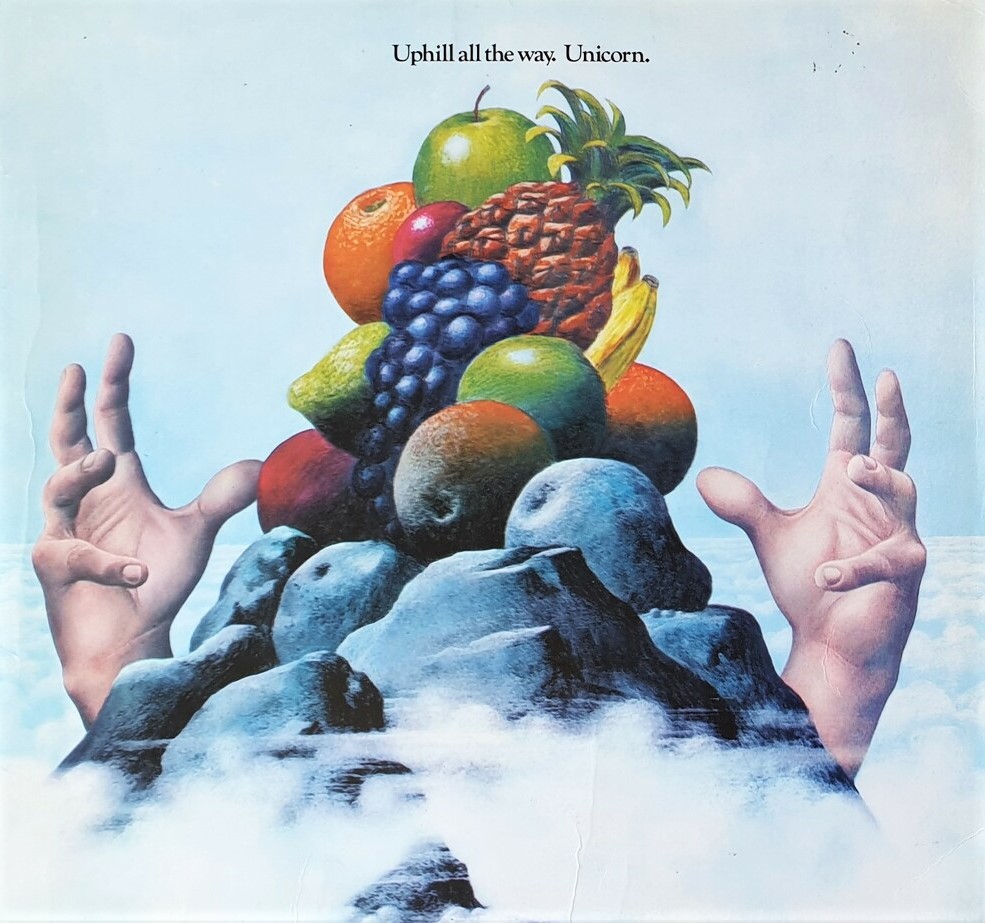
Did the size of audiences increase following the release of your debut?
We got better gigs starting with a gig at the Royal Festival Hall in London supporting Lindisfarne, we then went on a tour with blues guitarist Stephan Grossman and then started getting college and University gigs. Our first single ‘P.F. Sloan,’ written by Jim Webb, got a lot of radio plays on the BBC and Radio Luxembourg thanks to Transatlantic record plugger Ricky Hopper.
After the ‘Uphill All The Way’ album and single ‘P.F. Sloan’ sales and plays on radio slowed down things started to go a little quiet. Guitarist Trevor Mee met a girl in the Channel Island of Jersey where we used to play a lot as well as neighbouring island Guernsey. Trevor fell head over heels in love with this girl and ended up leaving the band, moving to Jersey and marrying her. We auditioned several guitarists but didn’t find one we liked. I remembered a guitarist called Kevin Smith who had been in a local band called the Elite who we once shared gear with and went out as The Late / Elite package. It didn’t last too long but we were all impressed with Kevin Smith’s guitar playing. I called him up and he wasn’t doing much, we had a play together and we offered him the gig as lead guitarist. He was a very good guitarist but didn’t sing, we had been doing four part harmonies with Trevor working them out. Ken took over working out the harmonies and we did three part harmonies.
We were offered a 10 tour of Holland which was excellent for us, we had become more country rock after Kevin joined and the Dutch loved that. We went back to Holland on many occasions, appeared on TV there with The Flying Burrito Brothers and did live radio, we also played in Sweden and then got invited to play at the Venice Song Festival because ‘P.F. Sloan’ had been played a lot in Italy. We were flown to Venice by the Italian label and played three nights at the Venice Song Festival which was on TV and radio over Europe. An Italian agent offered us a tour of Northern Italy some weeks after we did the Venice Festival. We drove out there, did a couple of gigs and then the agent disappeared with the money.
“David Gilmour came up to me and said that he really liked our original songs”
In early 1973 you played at the wedding of former Transatlantic records publicist Ricky Hopper. At the end of that evening one of the guests, Pink Floyd’s David Gilmour, jumped up on stage and began jamming with you on Neil Young’s ‘Heart of Gold’. I, and I’m sure most of our readers, would love to hear the story.
Ricky Hopper had left Transatlantic Records and the guy who replaced him was useless as far as we were concerned. Ricky phoned me to say he was getting married and asked if we would play at his wedding reception, he said he couldn’t afford to pay us but there would be lots of famous people there which would be good exposure for us. We had often had offers to do free gigs for exposure but they always turned out to be a rip off and a waste of time. Ricky had done an excellent job plugging the ‘Uphill All The Way’ album and our first single ‘P.F. Sloan’ so we decided we would do it for him for free. True to his word there were many celebrities there, we did our first set and in the break David Gilmour came up to me and said that he really liked our original songs, particularly ‘Sleep Song’ and our harmony vocals. He asked if we knew ‘Heart Of Gold’ by Neil Young and I was surprised that he was into that sort of music considering he was in Pink Floyd. He said he really liked Neil Young, Steve Miller, Crosby, Stills, Nash & Young et cetera. I said we had never played ‘Heart Of Gold’ but could probably have a go and he asked if he could come up and join in, so in the second set he got up and we did it. After the gig he asked for my phone number and he called me a few days later, he said he had just had a studio installed in his house in Essex and wondered if we would like some free time in it to demo our original songs, he added he would be experimenting with his new equipment so I quickly arranged a date with him. We turned up to his lovely house in the Essex countryside in our Transit van with our equipment, he said it was up to us but we could use any of his equipment if we liked. We went in and stared open-mouthed at all the rare vintage guitars hanging on the wall, lots of Fender combos, a Wurlitzer electric piano and a sparkling new maple Ludwig drum kit. We spent all afternoon and evening putting down songs and he was very encouraging and helpful. He phoned me a couple of days later and asked if we would like to do more, which we did and his beautiful American girlfriend Ginger cooked us a meal. After the meal we had a spliff and watched a video of Monty Python and I remember we were all rolling around on the floor laughing so much my stomach muscles were hurting. David phoned me a few days later and said he had got hold of a pedal steel guitar on his last Pink Floyd tour of the USA and wondered if we would mind him dubbing it onto our song ‘Sleep Song’. I of course said yes please. We went to David’s house several more times recording more demos and he said he had played them to his (Pink Floyd) manager Steve O’Rourke and that he would like to sign us to a management deal. He proposed David and him putting up the money for us to re-record the demo songs at Olympic Studios, London so he could present a recorded album to a record company and get a much better deal because they didn’t have recording costs. There was a problem in that we were still signed to Transatlantic Records and my dad was our manager and had spent a lot of time and money on us over the years. My dad was really cool about it and said he wouldn’t stand in the way of a great opportunity like this. Transatlantic would only let us go if they got the song publishing from half of our next album which Steve O’Rourke reluctantly agreed on. I found out years later from my dad that Steve O’Rourke had given him 1% of the action which I thought was amazing for a top manager to do…they’re not all rip off bastards.
Then came the Charisma contract for ‘Blue Pine Trees’. Do tell us more about it and the process of having the record out.
Our manager Steve O’Rourke and producer David Gilmour booked Olympic Studios in Barnes, London where The Beatles, The Rolling Stones, David Bowie, Eric Clapton, The Small Faces et cetera had all recorded. We started in the large room but then found the smaller room was more intimate and recorded most of ‘Blue Pine Trees’ in there, David then decided to mix the album at George Martin’s Air Studios in central London because he felt they were better equipped for mixing.
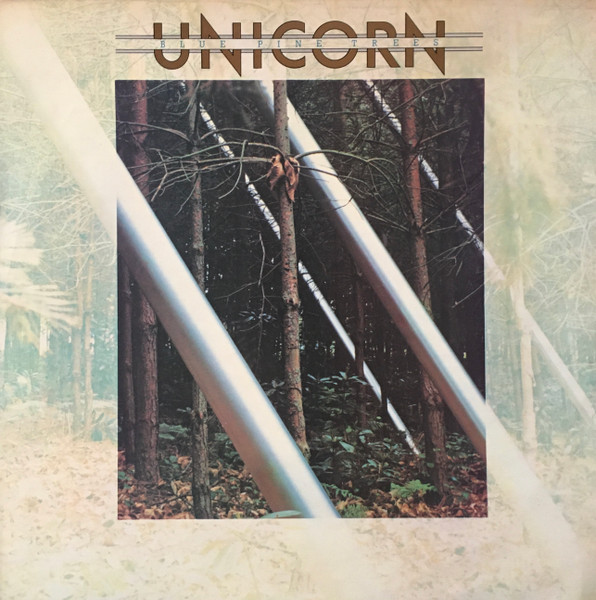
Steve O’Rourke punted the finished album around and got us deals with Charisma Records for UK (Charisma boss Tony Stratton-Smith part owned a racehorse with Steve O’Rourke, don’t know if that had anything to do with it). He got us an amazing deal with Capitol Records for the USA and EMI International for the rest of the world. All three deals had large advances included and we went from being a band in a Transit van with worn out equipment to a band driven in a car and brand new equipment driven in a truck by two road managers. Our head road manager / sound engineer was Norman Whapshott, a guy I sat next to on my first day at school and he went to secondary school with Pete and Ken. Our other road manager Frank Windsor was half French and definitely had a French attitude, he went on strike for a couple of days on our USA tour and I also heard him tell a big promoter “Your problem is you don’t cater for bands, mate.”
Hundreds of large posters of the ‘Blue Pine Trees’ album cover, designed by Hipgnosis who did all the Pink Floyd album covers, were spread all over the greater London area. Apparently there was a guy known as Mick The Pill who had the poster sticking market sewn up.
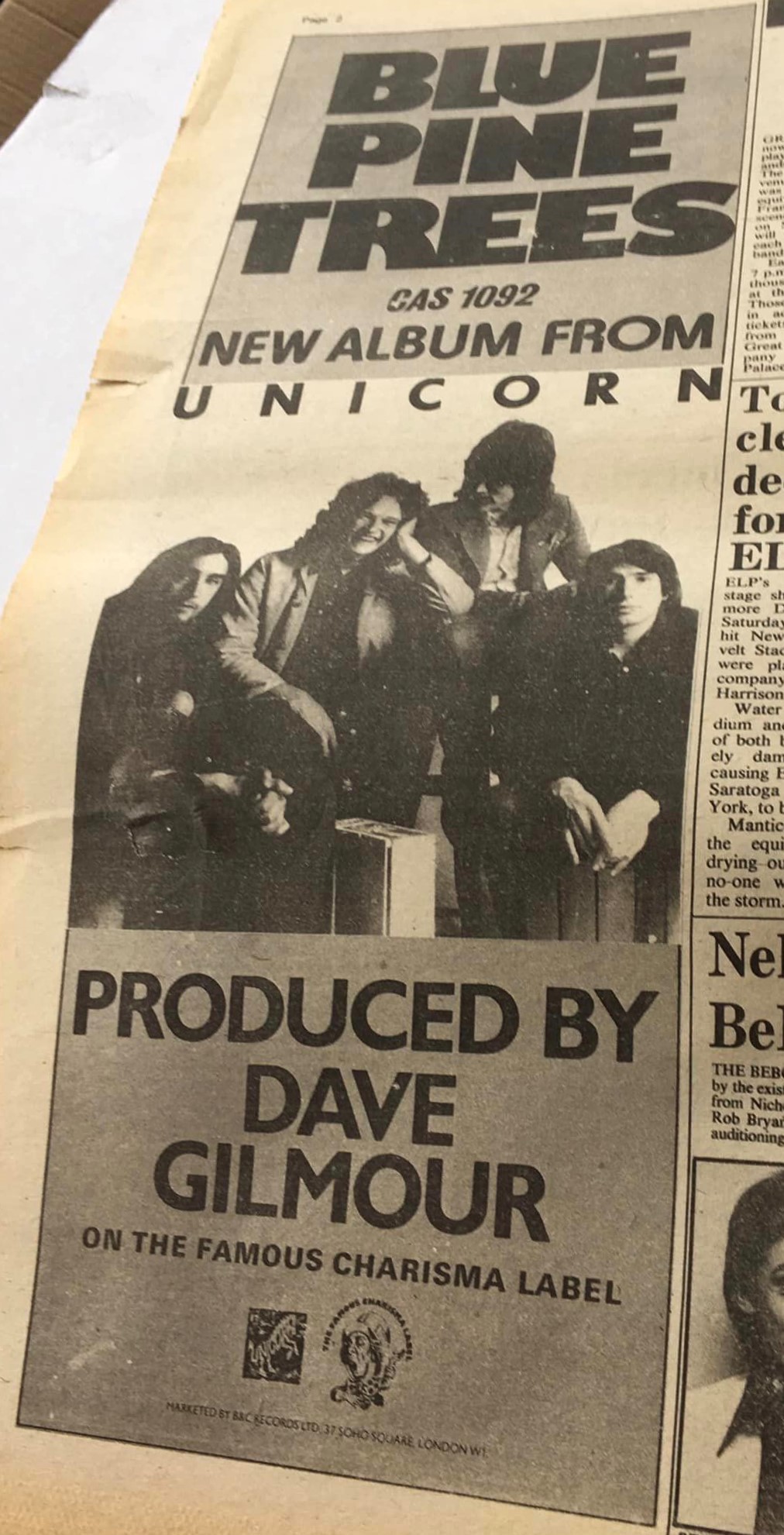
We got BBC sessions on the John Peel and Bob Harris show and Johnny Walker made our single ‘Ooh Mother’ his record of the week. We did Capital radio sessions and good write ups in the music press.
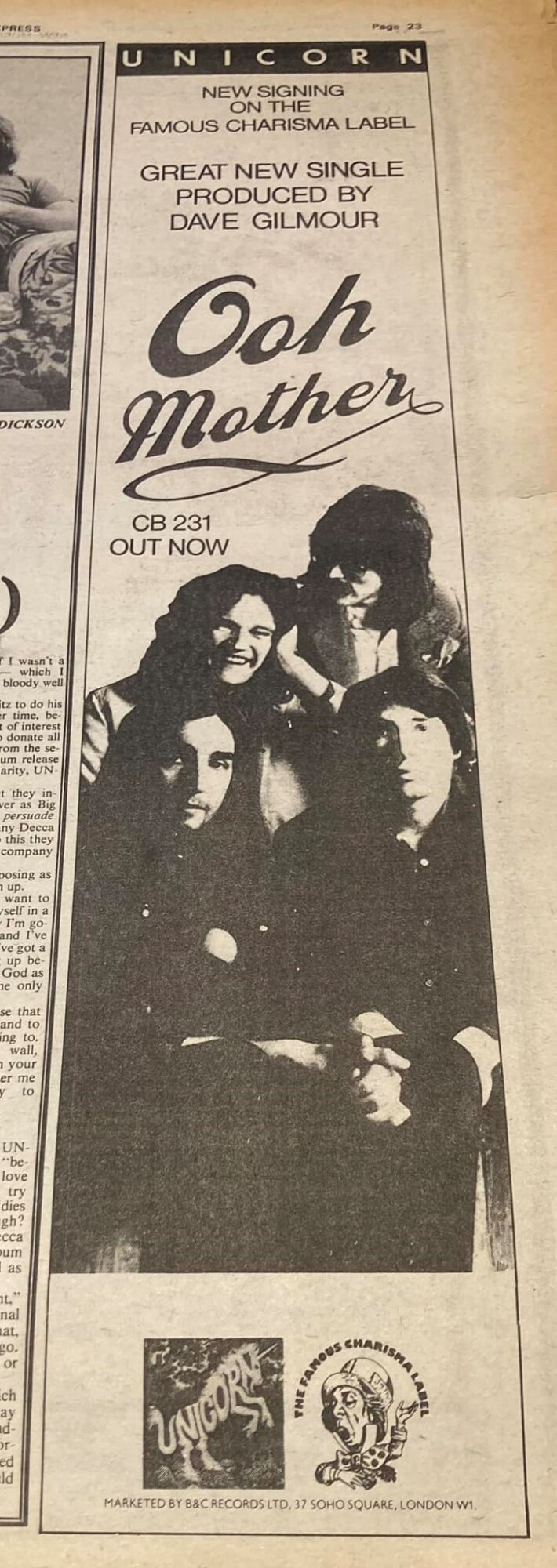
Tell us about the 1973–1974 demos produced by David Gilmour (‘Laughing Up Your Sleeve,’ 2018).
These demos were the one’s I described earlier that we did at David’s home Brenell 1” 8-track studio when we first met him in 1974. I was given them by David when his guitar tech Phil Taylor found them when moving David’s storage to another facility in around 2001.
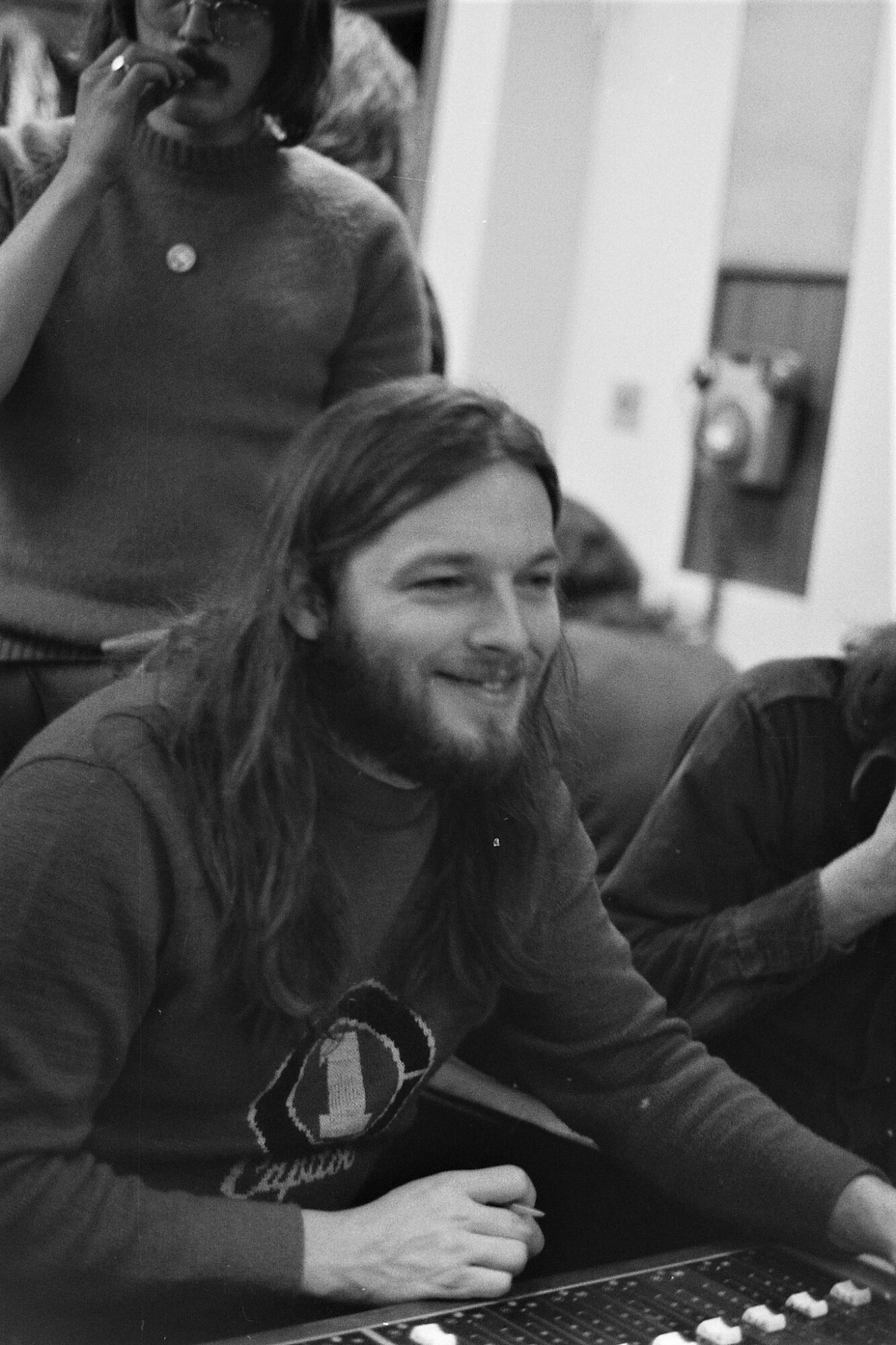
David Di Sanzo from New Jersey USA is possibly our number one fan, he knows more about Unicorn than I do and has everything we have ever recorded and some records (with different B-sides) I didn’t know had been released, he used to work for Capitol/EMI in New York. He came over to the UK to meet me, Ken and also Pete who was still alive at that time. While staying with me I showed David DiSanzo the multitrack tapes of the demos and said it was a shame we couldn’t play them. David offered to take them back to the USA and see if he could find someone who could play them and mix them down. To cut a long story short David DiSanzo took the multitracks back to the USA with him. He met Scott Anthony of Storybook Sound in New Jersey and Scott did a brilliant job saving and mixing the tapes down. I produced it from the UK as he engineered, fixed and mixed them. David DiSanzo got us a deal with LA record label Omnivore who put them out on vinyl, CD, and Download. Scott Anthony did a wonderful job mastering them. Scott is also a bass player which was a real bonus for me.
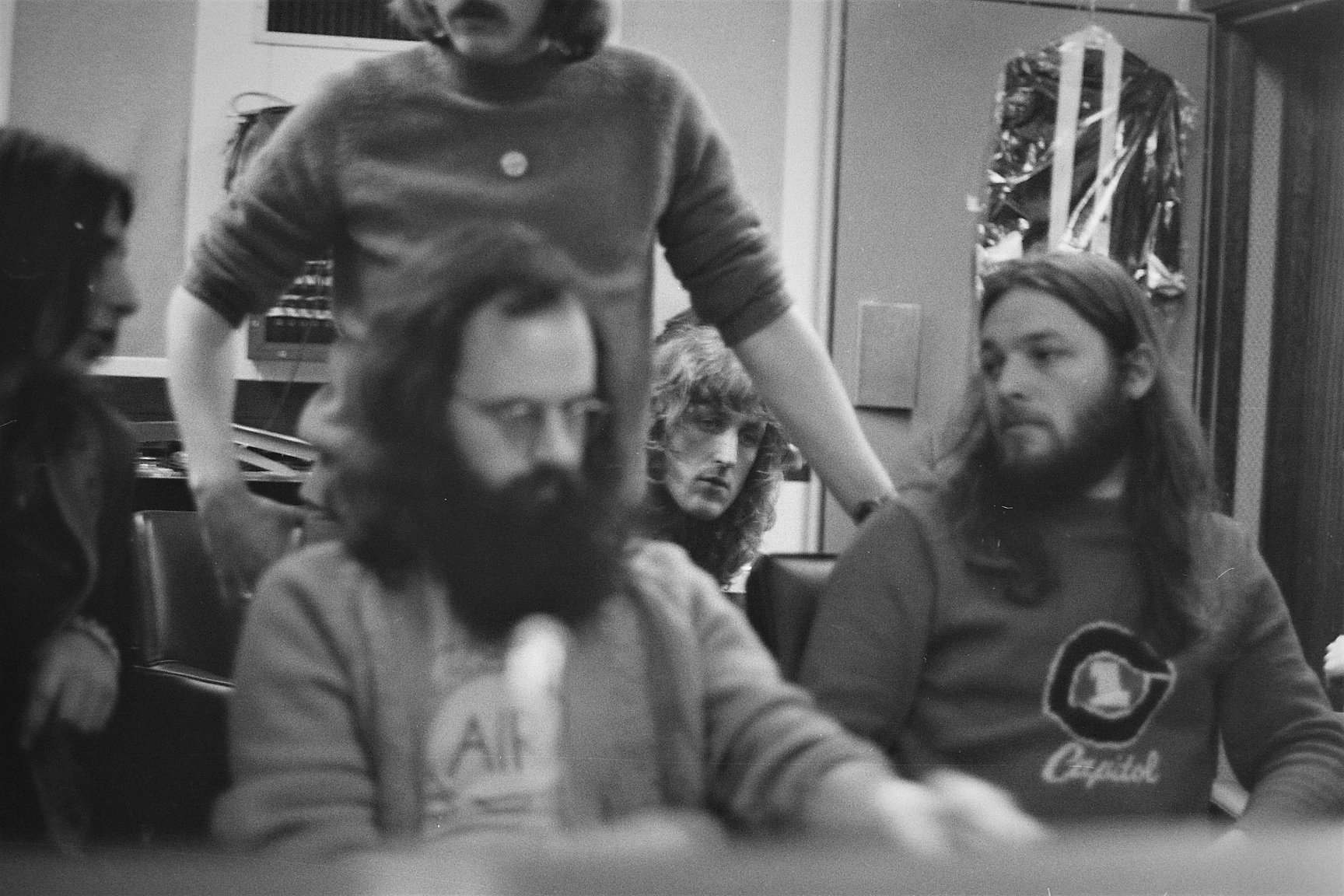
Tell us about some of the most notable gigs you played.
The largest crowd we ever played to was estimated to be 80,000 in France where we supported The Kinks at the Fete de Humanite festival in 1974.
On our USA Tour 1974 we supported, on various gigs, Fleetwood Mac, Doobie Brothers, Billy Joel, Styx, but the highlight for us was supporting Linda Ronstadt on her “Heart Like A Wheel Tour” around Texas. Her voice made the hair on the back of my neck stand up and her band was the best band I’ve ever seen live to this day. She had Andrew Gold on guitars, keyboards vocals and arranger, Kenny Edwards on bass, guitar and vocals, Ed Black on pedal steel and guitar and Dan Dugmore on pedal steel and guitar… an unbelievable band of musicians and really nice guys too.
Our best gig on the USA Tour was in Bozeman, Montana. We supported Fleetwood Mac (after Peter Green left and before Buckingham and Nicks joined) we blew them off the stage, the crowd absolutely loved us. The next night Mac’s tour manager sabotaged our set by cutting off our lead vocalist Pete’s mike.
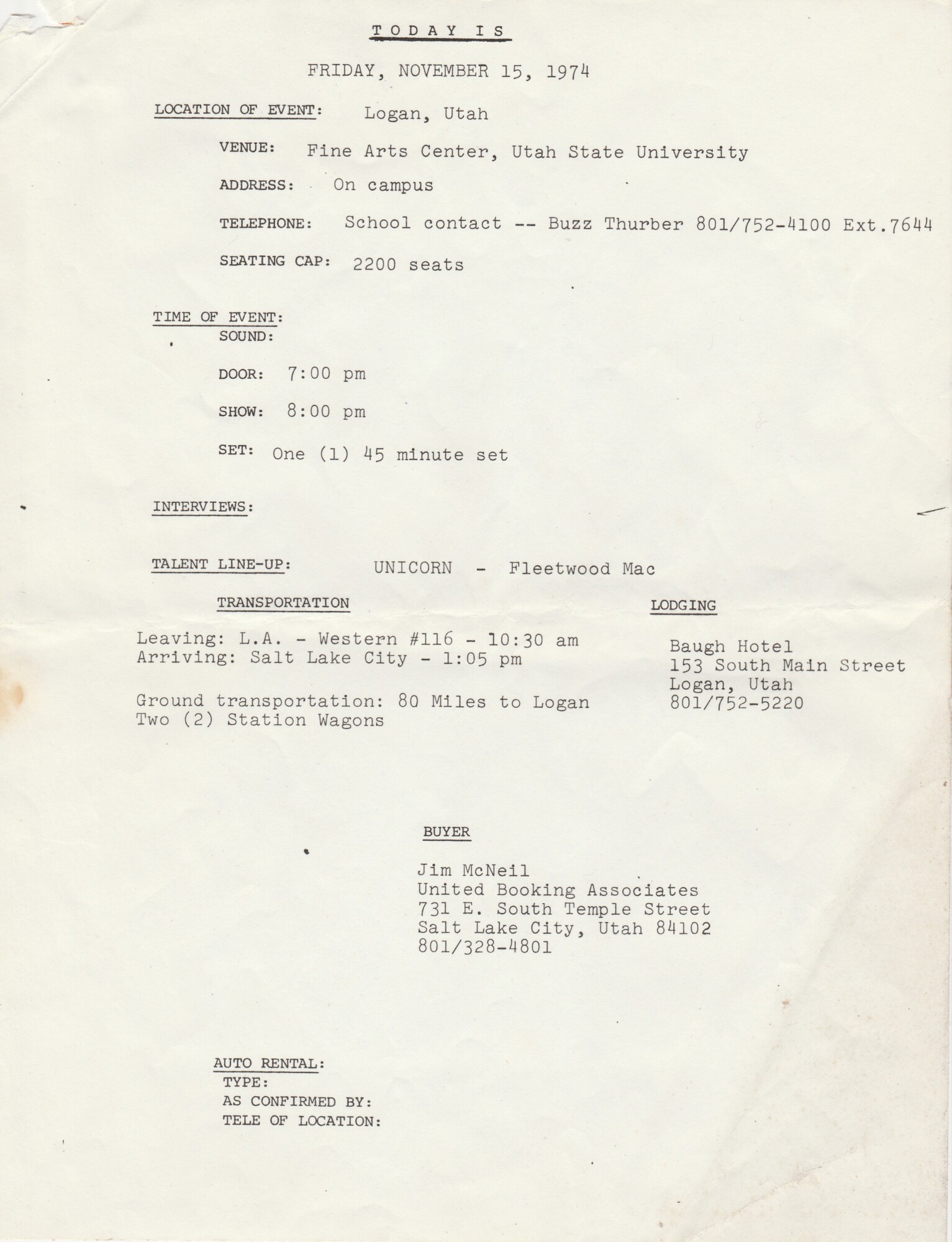
Your third album, ‘Too Many Crooks’ was also produced by David Gilmour. It was released on Harvest. How did that come about?
‘Too Many Crooks’ was again recorded at Olympic Studios but all in the more intimate smaller room and mixed at George Martin’s Air Studios, London. Harvest asked our manager Steve O’Rourke to sign us and in the process bought ‘Blue Pine Trees’ from Charisma too.
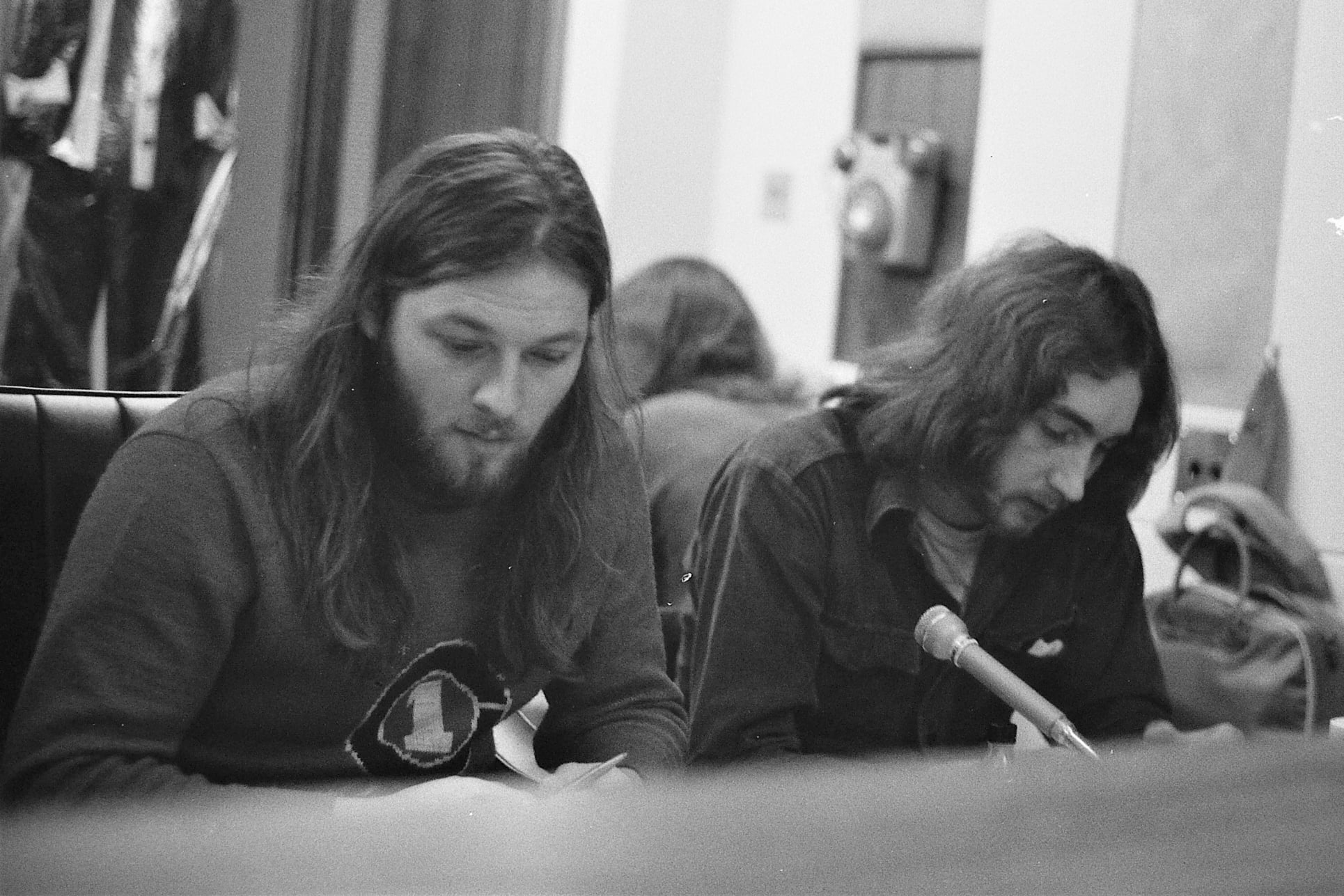
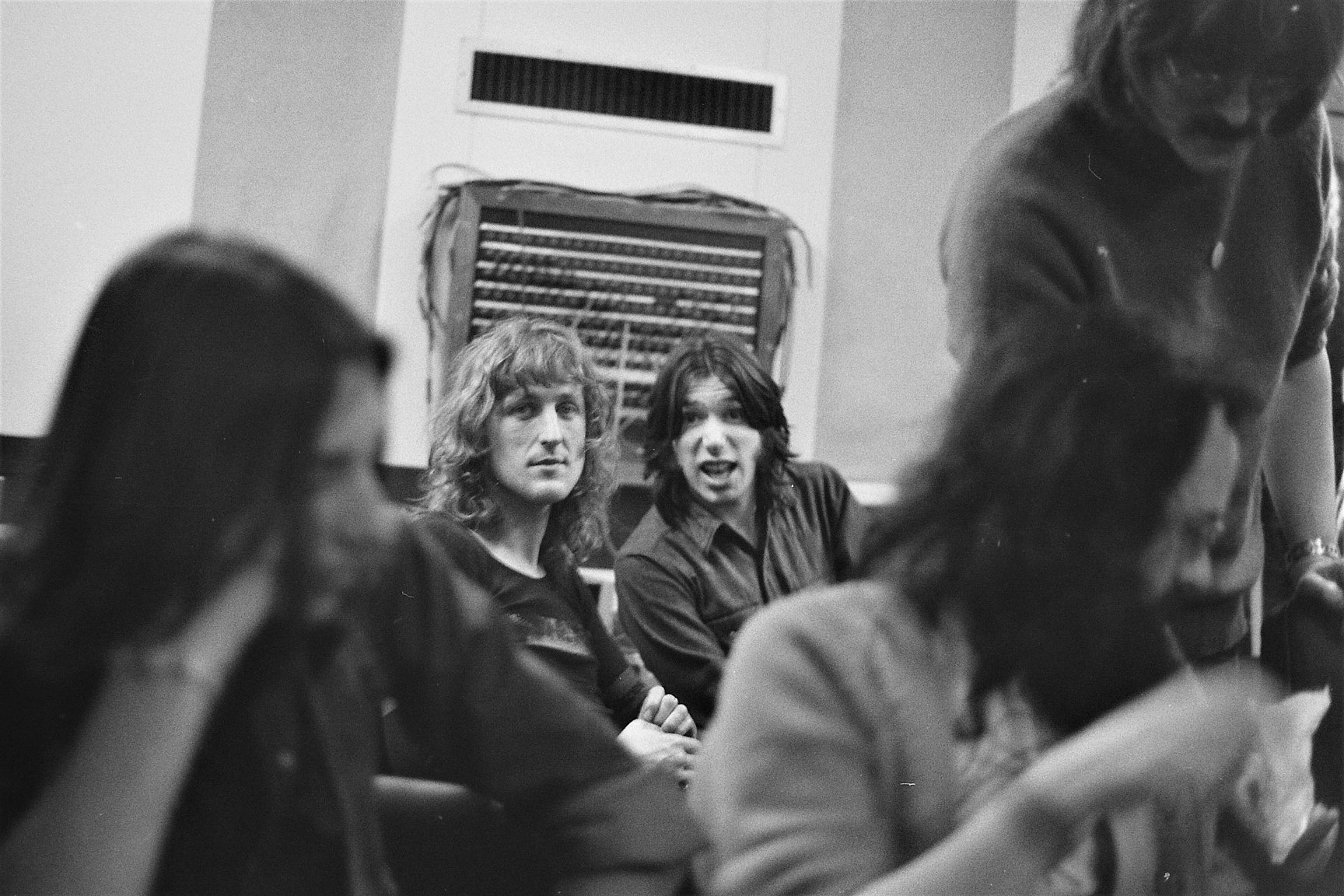
The haunting track ‘No Way Out Of Here’ found a second life as a standout song on David Gilmour’s debut album. That must have felt incredible?
Half way through recording ‘Too Many Crooks’ album Ken Baker was suffering from writer’s block and hadn’t written a new song for some time. One evening, when we were due to go into Olympic Studios the next day, David Gilmour rang me to say he couldn’t make the studio because of a very important business meeting. He said, as the studio was booked and it was too late to cancel, we should go in without him and do overdubs and stuff. When we got to the studio Ken said he had come up with two new songs, ‘In The Mood’ and ‘No Way Out Of Here’. We started working on them and we knew that ‘No Way Out Of Here’ was going to be something special. I was never happy with the sound of my bass in the studio headphones and Rufus Cartwright the studio engineer suggested I try sitting in the control room with him. It really worked for me and inspired me and from then on I always sat in the control room when we were recording. I couldn’t see Pete Perryer our drummer, but we had been playing together for such a long time that we didn’t need to see each other. I didn’t realise what Pete and I had as a rhythm section until after Unicorn finished and I started playing with other drummers.
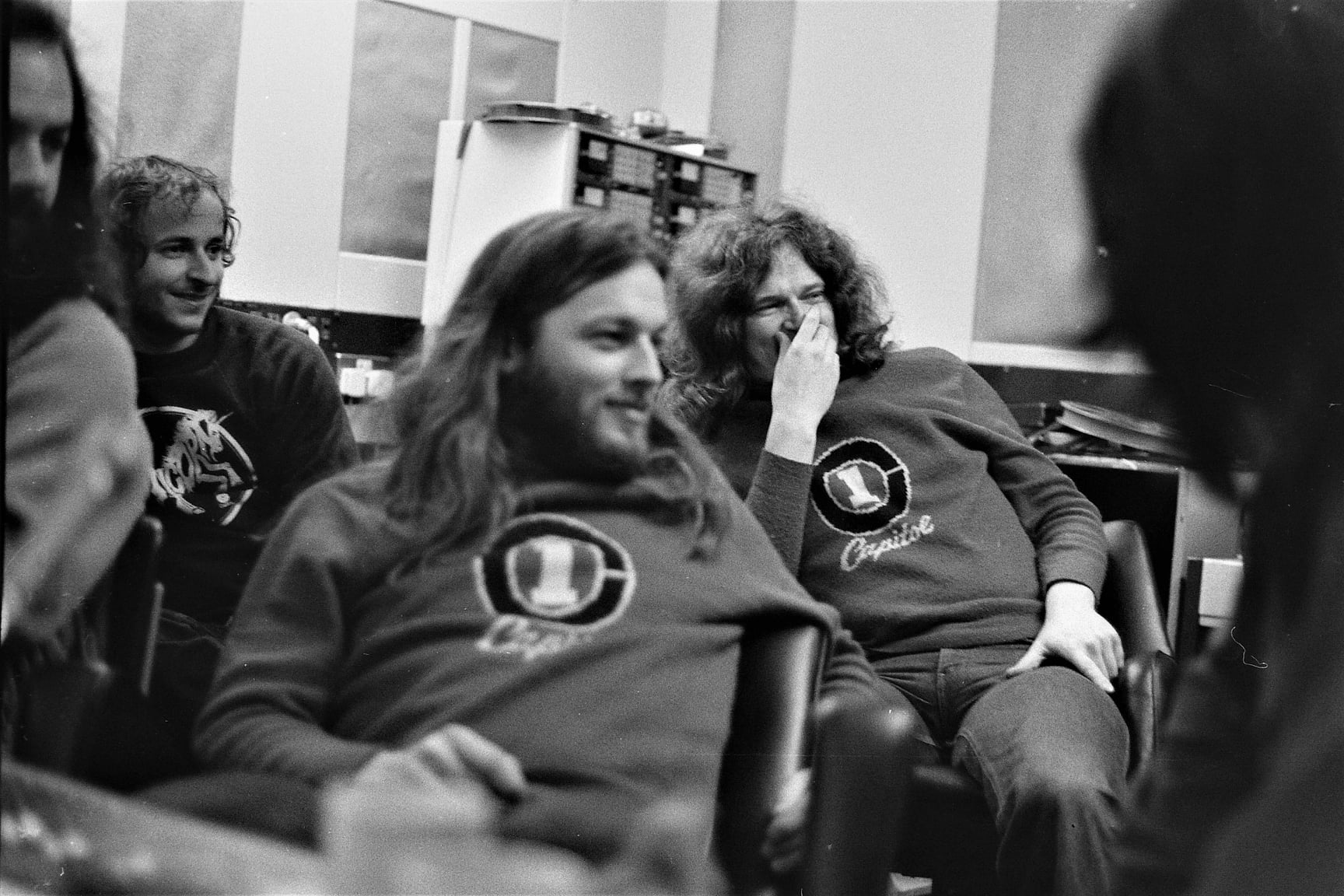
David Gilmour went into the studio the next day to listen to what we had done and phoned me to say ‘No Way Out Of Here’ was the best thing we had ever done and that he was going to cover it on his first solo album.
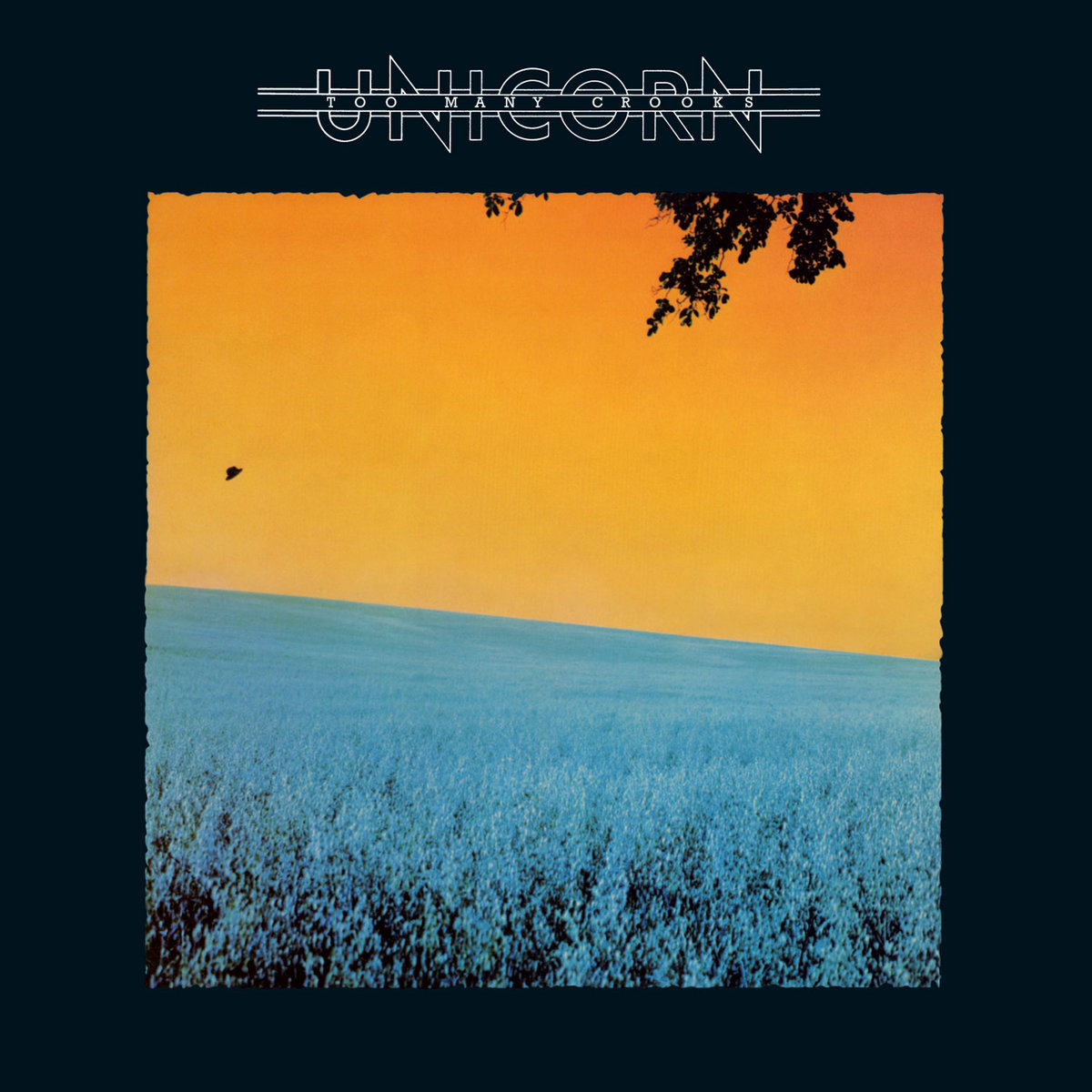
The song has been covered many times by David Gilmour, Iron & Wine and Ben Bridwell (performed it on the last Letterman TV show in the USA). There is a version by Monster Magnet who when interviewed didn’t know Ken Baker had written it. Most people assume David Gilmour wrote it and I, for one, am always correcting them. David’s guitar tech Phil Taylor told me it was a very popular song in David’s live shows some years ago.
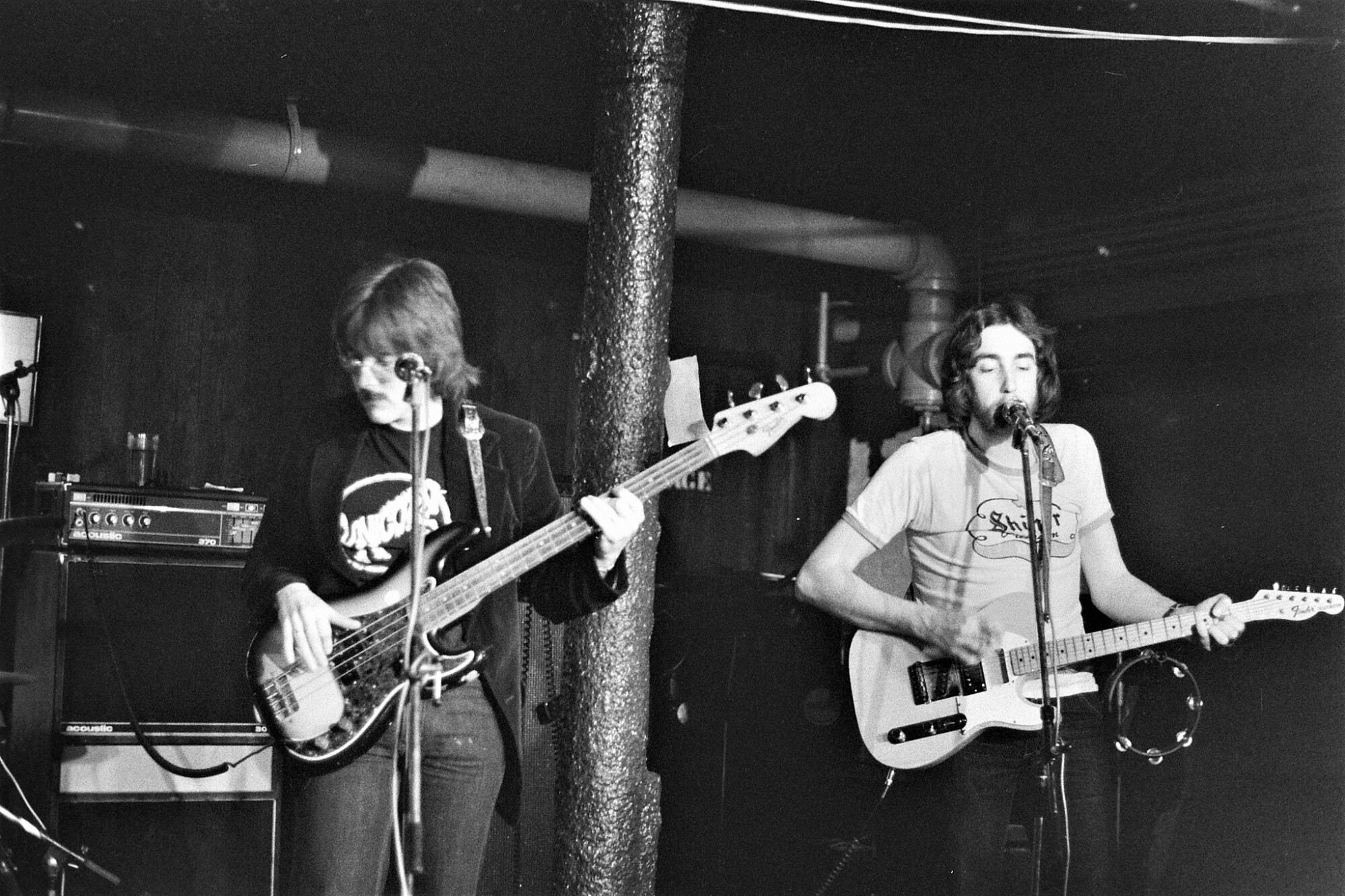
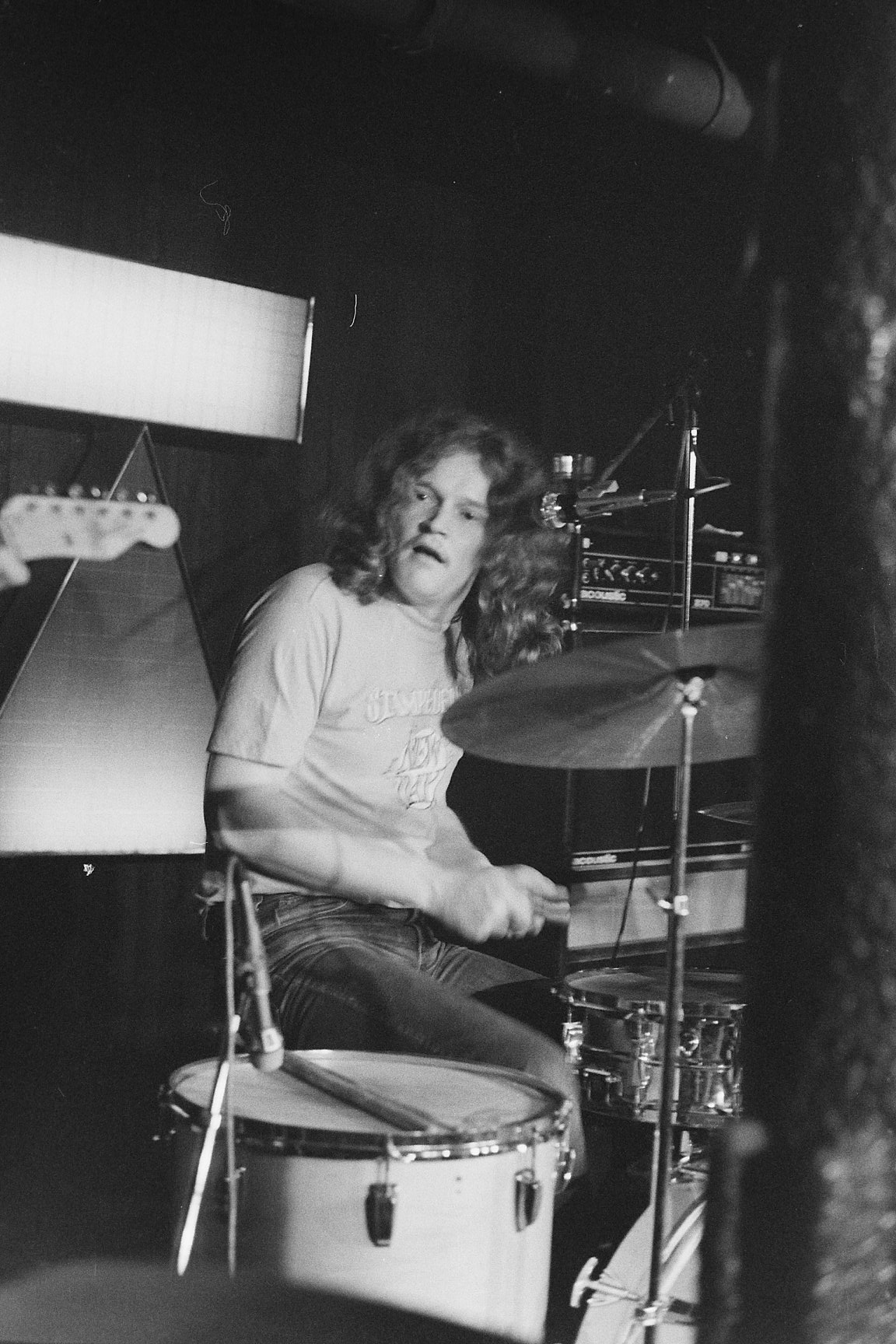
How did you enjoy working on ‘One More Tomorrow’?
We recorded and mixed ‘One More Tomorrow’ at Pink Floyd’s new Britannia Row Studio in Islington, London. I think we were one of the first to use it. David Gilmour produced, engineered and mixed the whole album there.
When the finished album was presented to Harvest they said we needed a commercial single to help promote it and our management brought in Steve Winwood’s brother Muff Winwood as he had produced quite a few single hits at the time.
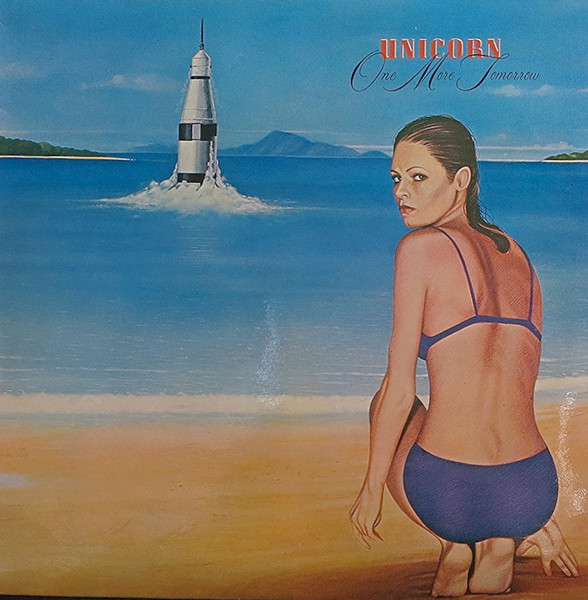
Muff came down to our Shed Studio rehearsal room and brought with him a song called ‘Slow Dancing’ written by Jack Tempchin who had written hits for The Eagles among others and we came up with our version of the John Fogerty’s Creedence Clearwater Revival song ‘Have You Ever Seen The Rain’. We arranged ‘Slow Dancing’ into what I would describe as our soul record. It was released as a single and got lots of plays on the radio. BBC DJ Johnnie Walker made it his record of the week and it got to number two in Capital Radios chart. The new wave was starting to take over and we were becoming very unfashionable.
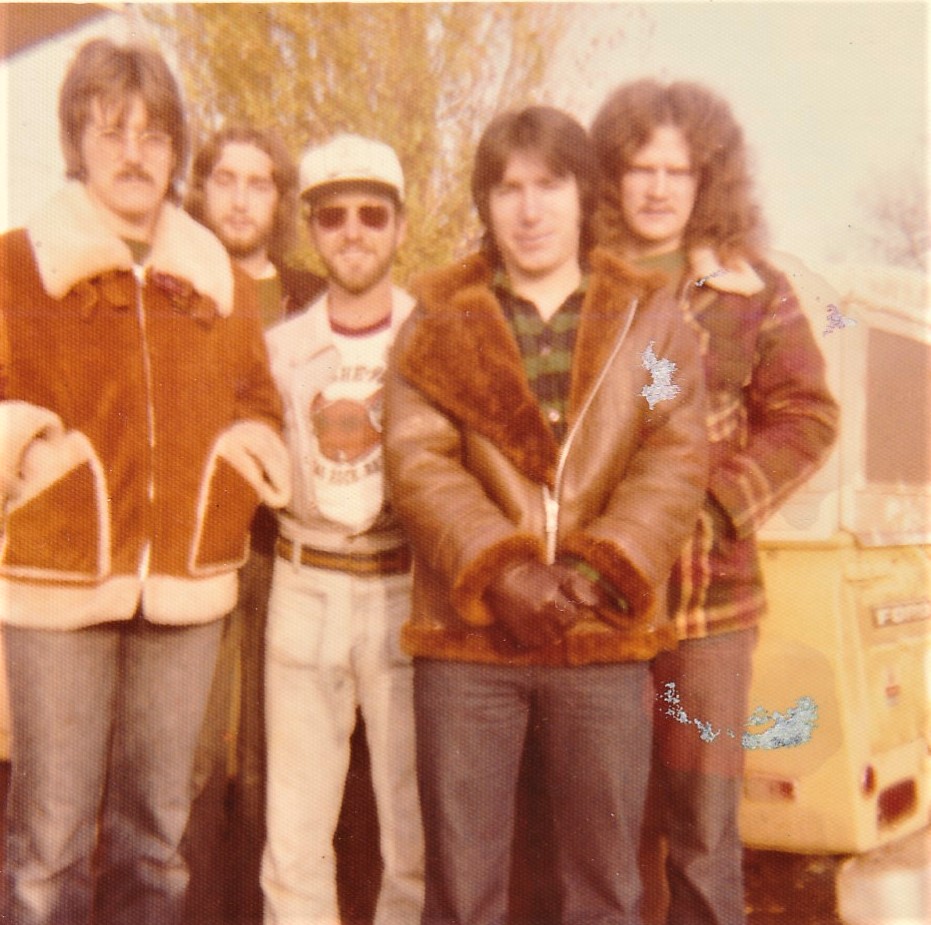
What material is featured on ‘Shed No Tear: The Shed Studio Sessions’. Would love it if you could tell us more about it?
The Shed Studio was basically my dad’s single car garage that was soundproof with egg boxes and expanded polystyrene. We practiced there from around 1965 up until we split in 1977. My dad built a lean to next to the garage in 1975 and we put in a ¼” 4-track Teac reel to reel tape recorder and mixed it down onto a Revox A77. Ken would write his songs at home and bring them to the Shed, he would play the chords and sing the tune or get Pete to sing the tune. We would play along and come up with arrangement ideas, when a new song suddenly started happening I would take my bass into the lean to. Norman Whapshot our roadie will have been getting a rough sound together, I would adjust it a bit and then we would lay down the backing track across two of the four tracks on the Teac to get a stereo spread. We would then record the lead vocals and harmonies across the other two tracks, sometimes adding other stuff at the same time. If the weather was good we would record the vocals out in the garden and you can hear the birds singing on one track. Sometimes we would record a vocal from my kitchen that had a unique sound due to its tiled walls. I would then mix the four tracks down onto the Revox and sometimes add something else at the same time as doing that. The mixed demo songs would be given to David Gilmour to choose for the next recording project.
In 2001 the original 1/4”reels of Shed Studio tapes were found by Phil Taylor, David Gilmour’ guitar tech and the search went on for a four track Teac machine to play them on. I eventually located an old Teac and took it to a guitarist friend called Brian Robinson. He “digitised” them on a Cubase system, cleaned them up and mixed them. The cleaning up was a huge job because the Teac recorder had been plugged into the same ring main as my mum’s washing machine and deep freezer, every time the washing machine changed cycles or the freezer thermostat switch on it made a peak on the digital wavelength. This hadn’t been noticed on the old analogy tapes but had to be removed on the digital version.
A lot of the songs on ‘Shed No Tear – The Shed Studio Sessions’ were inspired by a Canadian lady who Ken Baker met and fell in love with. She had to leave the UK when her visa expired and I often wonder if she ever got to hear those songs that she inspired.
You were the first band to use Pink Floyd’s new Britannia Row Studios. What kind of equipment was in there?
I think we were the first to record an album there. The equipment was all brand new and state of the art at the time but I can’t remember what it was. Rick Wright’s keyboards were set up in there and there was a lovely Steinway grand piano,
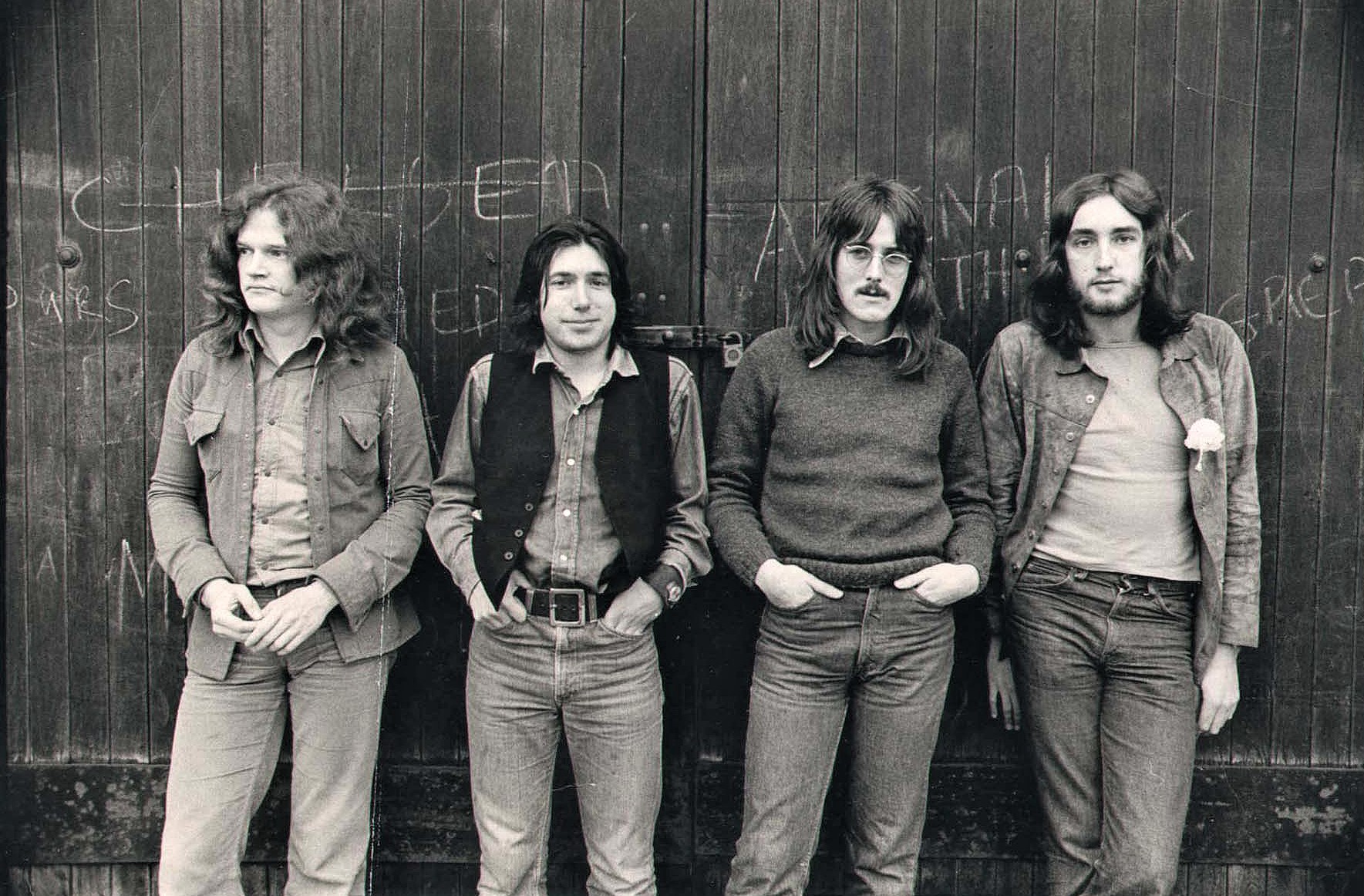
As a band, how did you usually approach song making?
Ken Baker wrote at home, Pete Perryer would sometimes go to Ken’s house to learn the melody and then Ken would play the songs to us in the Shed, we would face him, add our parts and make suggestions for arrangements et cetera. Ken only wrote from experiences that happened to him or he had seen. There’s a line in the song ‘Too Many Crooks’ that says “Roll up, roll up window cleaners, what a big man he must have been”. When Ken was writing that song, in his first floor bedroom, a face appeared at his window (the window cleaner up a ladder) and Ken wrote “What a big man he must have been.”
When David Gilmour said he was going to use ‘No Way Out Of Here’ on his first solo album he sent Ken some songs he wanted him to write the lyrics to. Ken said he could only write songs from experience and couldn’t write words to someone else’s song. David got Roy Harper to do them instead, great that he asked Ken first.
Was there a certain concept behind the albums?
No, there were no concepts behind any of the albums, they were just us trying to make as good an album as possible.
What happened after the band stopped? Were you still in touch with other members? Is any member still involved with the music?
When we got dropped by our record companies and management I tried to keep us together, sound guy Norman Whapshot and I used to hire Unicorn’s (ex Pink Floyd) PA system to bands and I sent tapes to every record label out there but punk was the thing and we were so unfashionable.
We did get a band together with a local singer songwriter guitarist Rob Jacobs called The Volunteers and had one single released on Logo Records called ‘If You Ain’t Scared’ Ken went solo for one single on Logo and Pete stopped due to illness. The Volunteers carried on for a while longer with Nicko McBrain on drums who after we called it a day joined Iron Maiden. He actually called me and asked if I wanted to audition for bass but I didn’t fancy playing heavy metal… probably not one of my best decisions, but I doubt I’d have got the job anyway.
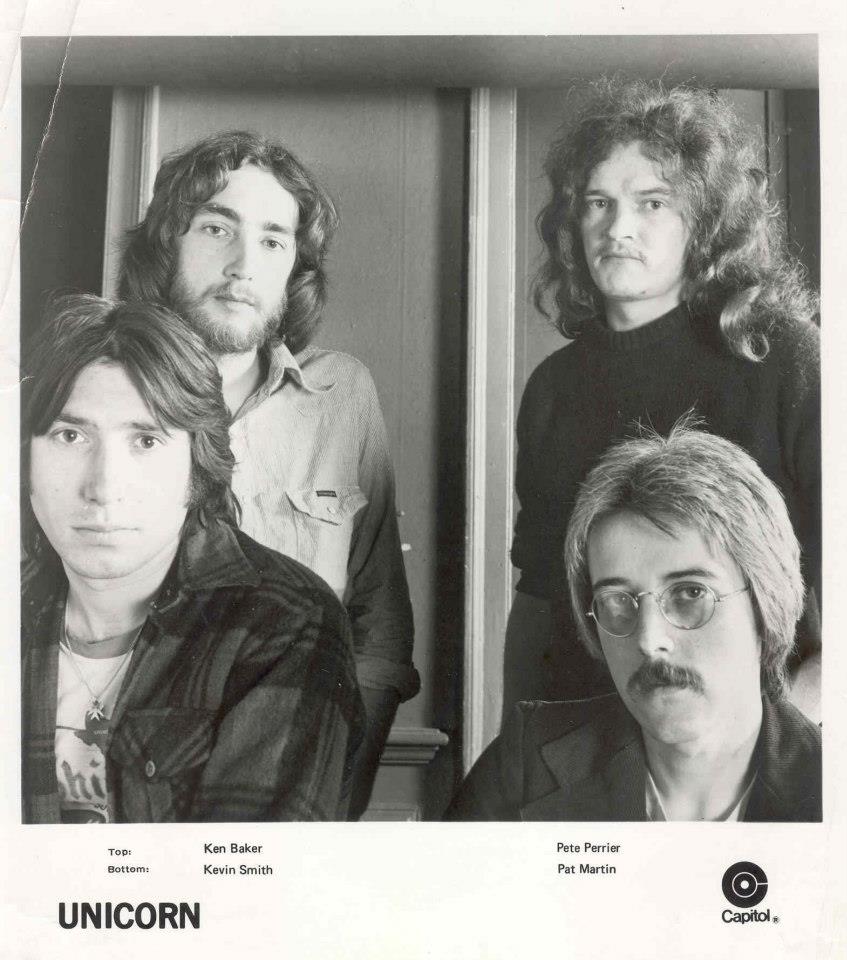
Looking back, what was the highlight of your time in the band? Which songs are you most proud of? Where and when was your most memorable gig?
Meeting David Gilmour, having three albums produced by him and being signed by his manager Steve O’Rourke and touring the USA.
I’m most proud of ‘No Way Out Of Here’. I think we peaked with that and I’ve had some nice comments about my bass parts on that.
My most memorable gig was Bozeman, Montana on our 1974 USA Tour, closely followed by touring Texas with Linda Rondstadt and her amazing band for her “Heart Like A Wheel” tour.
I still play today and do occasional session work on bass and Baritone guitar. I have an 8 piece Motown cover band called Tamla Tigers where I can shut my eyes and try to play my hero James Jamerson’s wonderful bass grooves. I play with another band called Nick Of Time and sometimes play with a blues band.
In August 1973 you and Pete Perryer played on Kate Bush’s first recording session at David Gilmour’s studio.
Ricky Hopper, who was a record plugger at Transatlantic and then introduced us to David Gilmour and became our tour manager, kept telling us about the young sister of a guy he went to Cambridge University with called Kate Bush. He said she was writing some great songs. He pestered David Gilmour to let her have some time in his studio. David finally agreed and phoned me up to ask if Pete Perryer and I would do a session playing bass and drums for “that girl Ricky Hopper keeps going on about.” He said we wouldn’t get paid but it would be helping her out.
Pete and I went up to David’s home studio in Essex and got set up, after a while a very young Kate Bush and her brother turned up. She was very shy and said she had never played with any other musicians before, only on her own at home. We said just pretend you are at home and we will listen and gradually join in. David played guitar and engineered. Kate gradually came out of her shell and we ended up doing about four or five songs.
A year later and Kate is a big star, a few years after that she used one of the demos we played on called ‘Passing Through Air’ as the B-side to her big hit ‘Army Dreamers’ and sent Pete and I a cheque for the original session.
I last spoke to Kate a few years ago when she phoned me to ask where to send flowers when Ricky Hopper passed away. I said to her I remember how scared she looked when she walked into David Gilmour’s studio and she said “Scared… I was bricking it!”
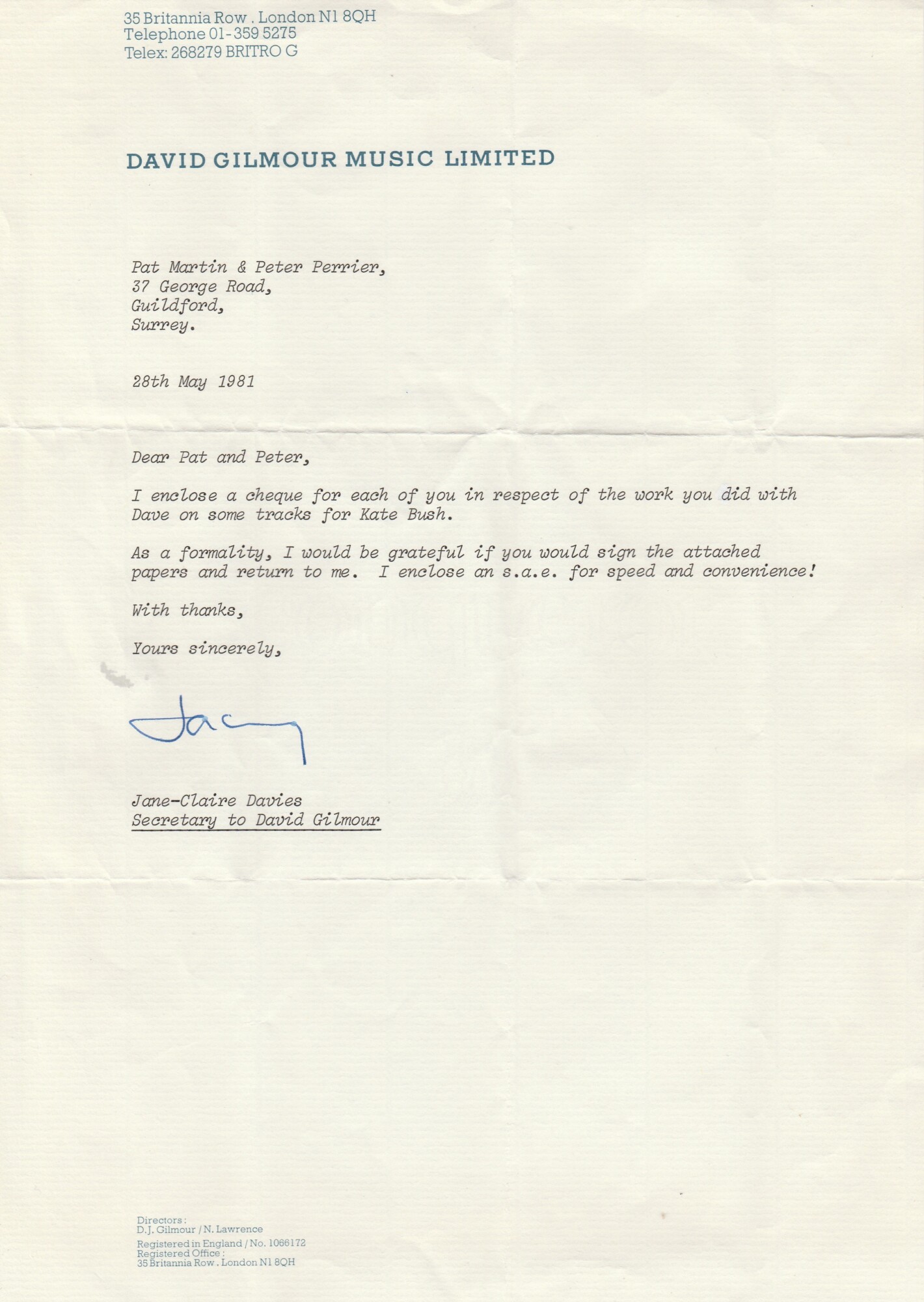
In 2020 ‘Ooh Mother’ was featured on the soundtrack of the NBC series Good Girls!
Yes, that was a nice surprise and I got a nice cheque too. After that the hits on Spotify and YouTube and sales shot up as people checked out Unicorn ‘Ooh Mother’.
Is there any unreleased material by Unicorn?
Yes there are still some unreleased tracks, although we used a lot on the 4th CD in the ‘Slow Dancing (The Recordings 1974 -1979)’ box set.

Thank you for taking your time. Last word is yours.
Thank you for doing this for us and helping spread the word. Klemen, there’s no way out of here, when you come in you’re in for good.
Klemen Breznikar
Headline photo: Unicorn publicity shot for their first album ‘Uphill All The Way’ on Transatlantic Records
Unicorn Facebook
Think Like A Key Music Official Website / Facebook / Twitter / Instagram / Bandcamp / YouTube
Albums available:
The Late – ‘Songs From The Family Tree’ on CD from Wooden Hill Recordings (available from david.wells11@ntlworld.com )
Unicorn – ‘Uphill All The Way’ on vinyl from Trading Places US (available from Juno Records)
Unicorn – ‘Blue Pine Trees’ on vinyl from Trading Places US (available from Juno Records)
Unicorn – ‘Too Many Crooks’ on vinyl from Think Like A Key Music (available from Juno Records)
Unicorn – ‘Too Many Crooks’ on CD from Think Like A Key Music
Unicorn – ‘Blue Pine Trees’ on CD from Esoteric Recordings available Amazon)
Unicorn – ‘Too Many Crooks’ on CD from Esoteric Recordings (available Amazon)
Unicorn – ‘One More Tomorrow’ on CD from Esoteric Recordings (available Amazon)
Unicorn – ‘Slow Dancing’ – The recordings 1974 – 1979 4 CD Remastered & Expanded Box Set from Esoteric Recordings (available Amazon)
Unicorn – ‘Shed No Tear’ The Shed Studio Recordings on CD from Mad Dog Records (available from Pat Martin altcountry@outlook.com )
Unicorn – ‘Laughing Up Your Sleeve’ on vinyl / CD / Download from Omnivore Recordings
Unicorn – ‘Best Of Unicorn’ CD (only available used)
Unicorn – ‘No Way Out Of Here The Anthology’ double CD (only available used)
Unicorn – ‘Uphill All The Way’ (just re released on vinyl via Trading Places)

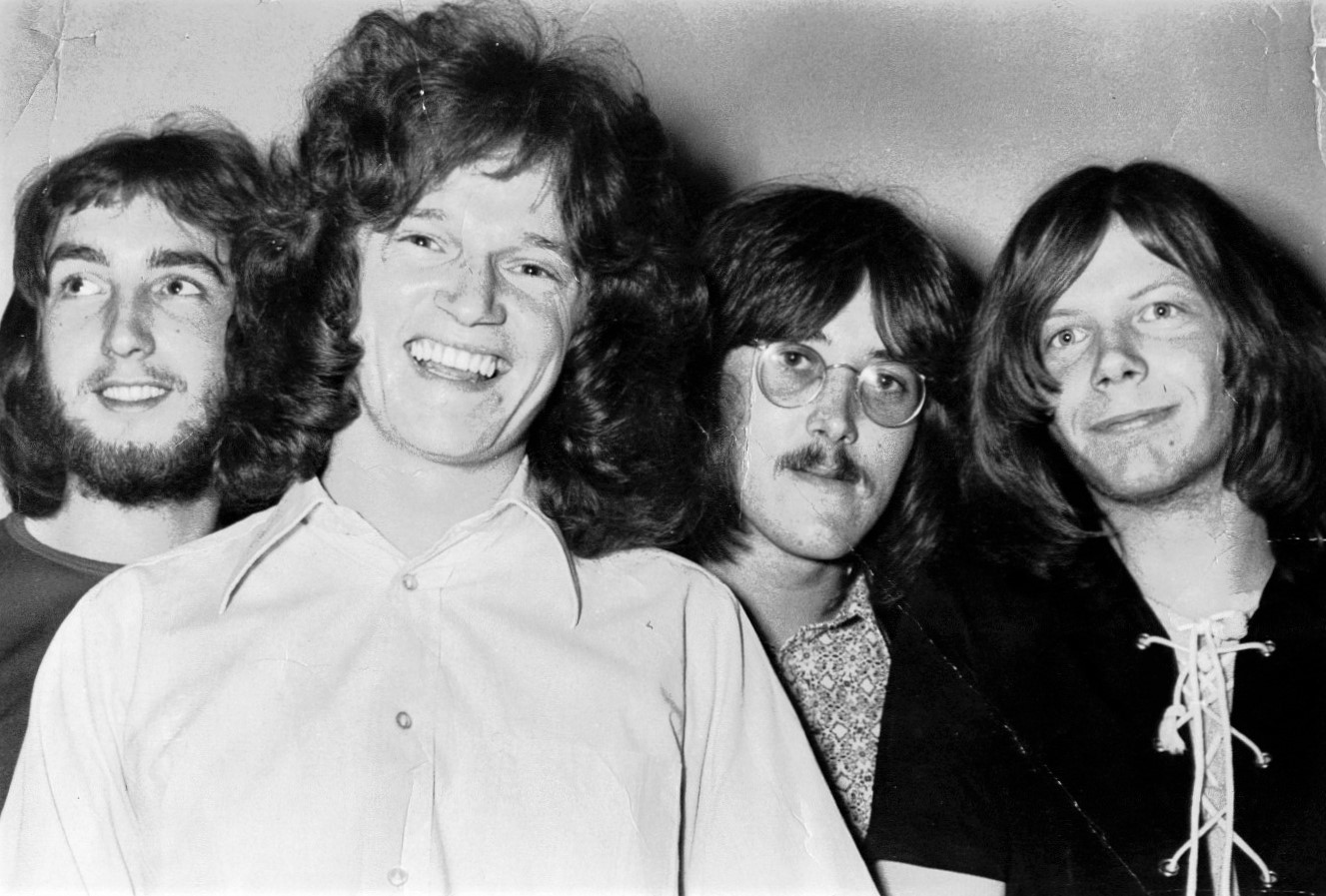



Thanks for the interesting interview.
Nice interview!The Late material IS very Hollies inspired,so seeing them mentioned in the interview makes sense,The Late recordings do have a very English pop sound,with influences that were going on all round them at the time in the UK pop world,with a slight sprinkle of dayglo like vibe.In particular the songs from 1967 and 68,tracks 1 to 16 on the “Songs From The Family Tree”cd,but i could certainly hear the changing influence in their sound,and them maturing as writers by the time of 1969,with “Our Love’s A Memory”&”Faint Is The Song”both show Ken Bakers writing and the bands playing was coming on leaps and bounds.
The covers of”Corrina Corrina”& “Who Knows What Tomorrow May Bring”,shows other influences seeping into their sound as Traffic themselves had taken on influences of folk and the vibe peremeating from the West Coast of the US.
There’s a big jump in the change of sound from The Late of 1969 to the Unicorn sound of 1971,and personally “Uphill All The Way”is my favourite Unicorn album,and it’s NOT included on Esoterics excellent box set”Slow Dancing”,but the extras on this box set are many and very enjoyable.The debut album”Uphill All The Way” IS readily available on cd seperately,again with bonus tracks.
I also have a double cd collection titled”No Way Out Of Here|” which is a US release from 2009,and this again is loaded with unreleased recordings,particularly on cd 2,its amazing the tremendous material Unicorn recorded that did NOT get released at the time,as on the whole they’re fabulous and very enjoyable!!
It shows how quick the music fads where changing,as by the time The Late morphed into Unicorn,a strong Americana influence was happening in the UK,with the huge success of The Band,and in particular the harmony laden Crosby,Stills and Nash debut album,and this IS the sound of Unicorns debut album”Uphill All The Way”,that influence is so strong in its harmonies but also in the acoustic stylings on many of the songs,you could excuse anyone thinking this was a US West Coast band as the sound and vibe is so obvious,and that IS meant as a compliment,as it’s certainly NOT a carbon copy,but it is a UK band using that influence to mould their own songs and sound.
P.F Sloan of course was a fantastic writer in the US,in particular around the folk-rock sound from 65/66,and many groups recorded his songs,but unfortunately that success did not happen for P.F.Sloan himself as a recording artist,so for a UK group like Unicorn to have their debut single being a tribute of sorts to the man,via Jimmy Webb was a rather obscure choice for their first single,but it IS a fab song,but for the UK charts in the early 70s,maybe just a bit obscure?
Unicorn ARE excellent,every album has much to recommend them,but also the songs that where recorded and not released are excellent,so thankfully many of those are available too.
In a way it’s a shame their mainly known by many as being involved with Floyds Dave Gilmour,as even WITHOUT his involvement Unicorn were excellent,and IT was their talent and songsmithery that attracted Dave Gilmour to them in the first place.
Unicorn can be added to the list of groups and acts from the 60s and 70s that deserved more commercial success,and be more known by more people,as their music IS timeless!!
I thank them for the great enjoyment their recordings have given me through the years,from their early days as The Late to the magical sounds of Unicorn!!
Thank you for your comments Stuart Robertson, if you need any Unicorn info’ I’m your man.